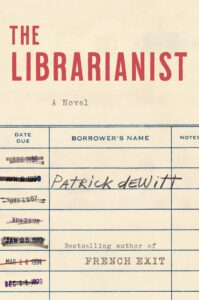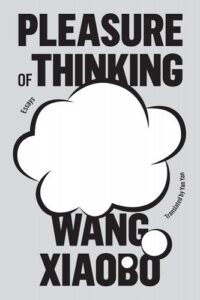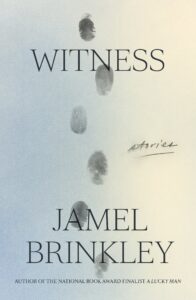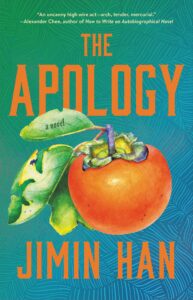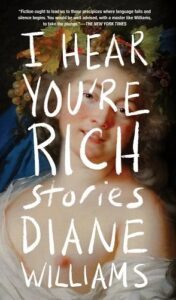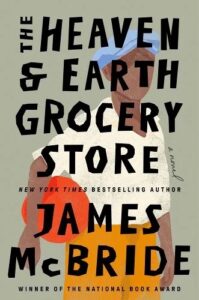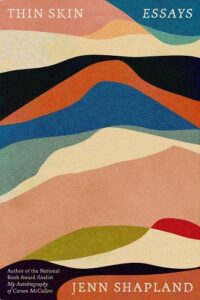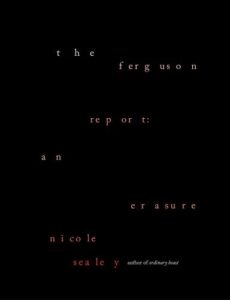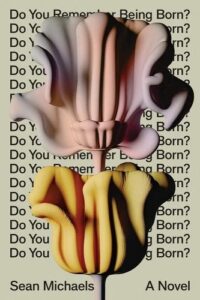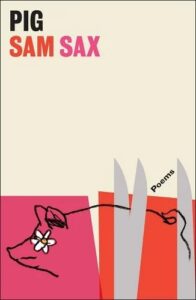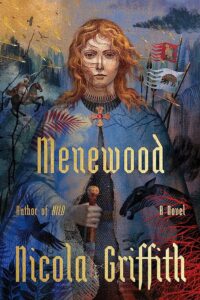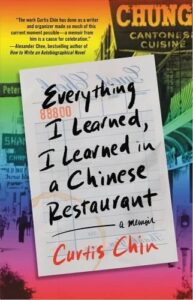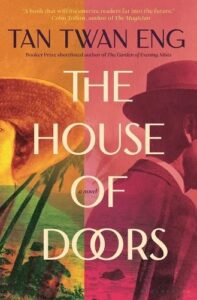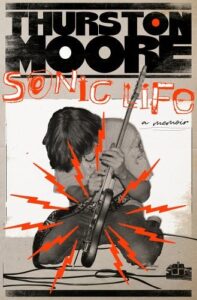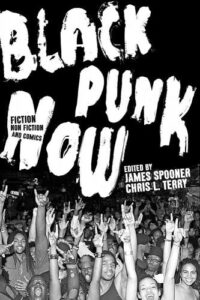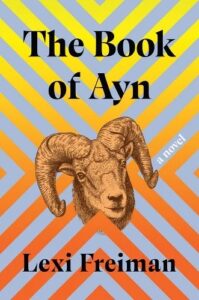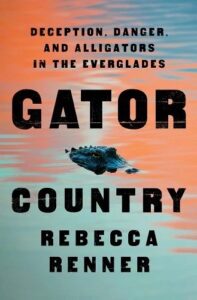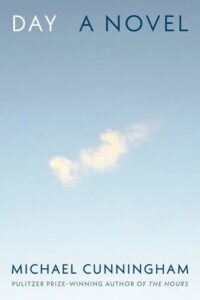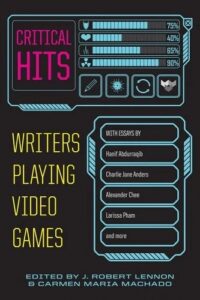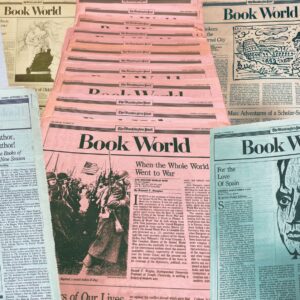
Lit Hub’s Most Anticipated Books of 2023, Part Two
166 Titles We’ll Be Reading in the Second Half of the Year
Somehow, the year is already half over—time flies when you’re reading good books. Now that it’s July, the Literary Hub staff is looking forward to all the books coming out in the rest of 2023—from fiction to nonfiction to poetry.
JULY
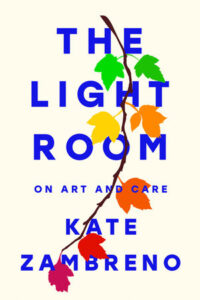
Kate Zambreno, The Light Room
Riverhead, July 4
When Annie Ernaux says you’ve captured a new form—“a kind of absolute present, real life captured in closeup”—you know you’re doing something right. And so says the Nobel Laureate of Kate Zambreno’s latest, a memoir about parenting and creating art through the precarity of a pandemic and climate change. I did not parent through a pandemic (I do not parent at all), but that didn’t prevent me from appreciating Zambreno’s wise, multifaceted musings about isolation and nature, making art and making humans. –Eliza Smith, special projects editor
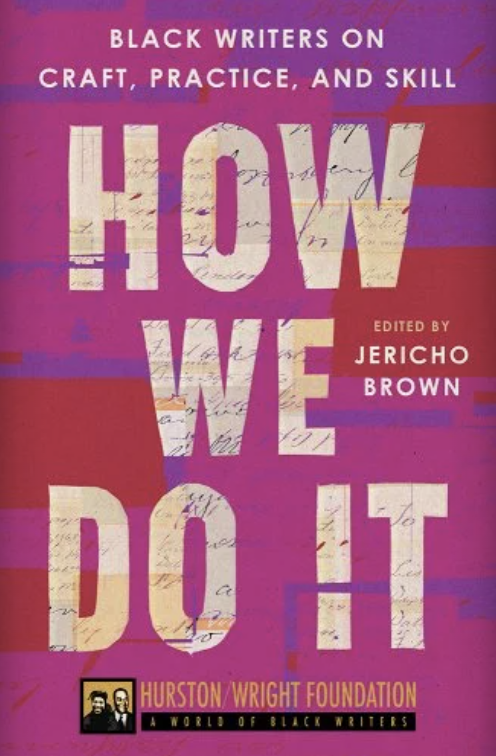
Jericho Brown, How We Do It: Black Writers on Craft, Practice, and Skill
Amistad, July 4
As previously recommended: It’s right there in the title. Poet Jericho Brown has assembled an all-star lineup of Black writers holding forth on the nature of their art and how it relates to who they are in the world. With writers like Rita Dove, Camille T. Dungy, W. Ralph Eubanks, Angela Flournoy, Nikki Giovanni, Terrance Hayes, Mitchell S. Jackson, Barry Jenkins, Jamaica Kincaid, Jacqueline Woodson, and many more, this collection is for anyone who’s ever tried to put thought and feeling into words. –Jonny Diamond, Editor-in-Chief
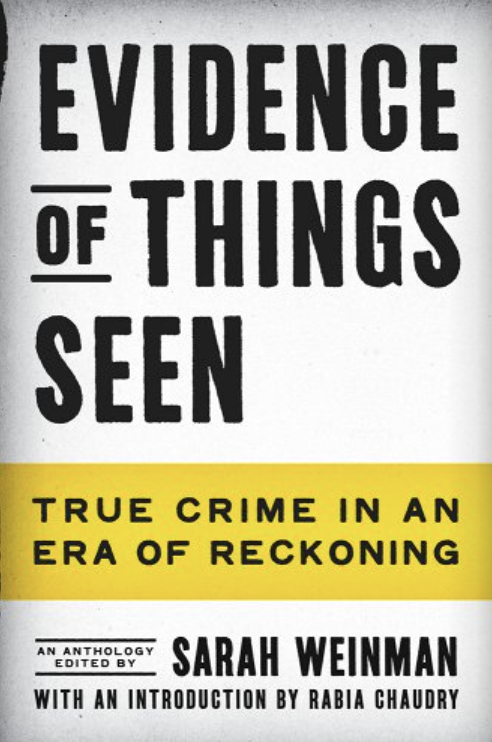
Sarah Weinman, Evidence of Things Seen: True Crime in an Era of Reckoning
Ecco, July 4
As previously recommended: The last decade has seen true crime as a genre—be it audio, in print, or on screen—grow into a billion-dollar industry, as demand for digestible, narrativized accounts of humanity’s darker side has proven bottomless. But with money to be made, standards inevitably drop… So how do we distinguish between the exploitative sensationalists and the thoughtful reporters? Luckily we have Sarah Weinman’s new anthology, as good a starting place as any for the best in true crime, featuring writers like Wesley Lowery, Justine van der Leun, May Jeong and more, who get to the bottom of the story without scraping the bottom of the true crime barrel. –JD
PATRICK DEWITT, THE LIBRARIANIST
ECCO, JULY 4
As previously recommended: Full disclosure: I will read anything Patrick DeWitt writes. The Sisters Brothers is one of the funniest novels in recent memory, and French Exit was purely, and darkly, delightful. So, though my buy-in was all but guaranteed, and The Librarianist—which tells the story of a retired librarian who tries to inject meaning into his newly wide open days by volunteering at a senior center—seems like a perfect showcase for DeWitt’s wit(t), and for his funny, off-kilter, beautifully human characters. –Jessie Gaynor, Senior Editor
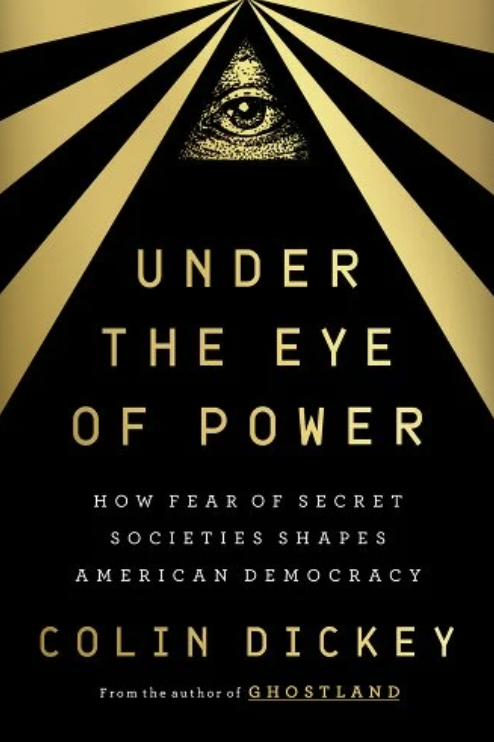
Colin Dickey, Under the Eye of Power: How Fear of Secret Societies Shapes American Democracy
Viking, July 11
As previously recommended: We can think of no better writer than Colin Dickey—who has written beautifully for this site—to examine America’s foundational obsession with conspiracy. From Salem to John Birch to Pizzagate, the “paranoid style” has been a part of this country’s identity long before it was given name by Richard Hofstadter in 1964. But what are we to do when people would rather ascribe their ill fortune to shadowy cabals of powerful puppet masters than the randomness of the universe? For Dickey, the first step is admitting we have a problem. –JD
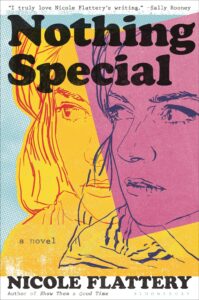
Nicole Flattery, Nothing Special
Bloomsbury, July 11
As previously recommended: A novel set Andy Warhol’s grubby-but-glamorous (at least ostensibly) Factory in which Drella himself barely features, where hedonistic parties are drowned out by the furious clack of typewriter keys, and where Edie Sedgwick and Ondine become tertiary players in the story of two forgotten schoolgirls, Flattery’s coming-of-age debut novel is a bold and brilliant examination of an iconic—and ultimately hollow—movement from the vantage point of its most invisible cogs.
Mae is a disaffected seventeen-year-old New Yorker, searching for an escape from the tedium of school and the claustrophobia of home life, who finds, or believes she finds, purpose in the two-person typist pool of Warhol’s celebrity petri dish (a “doll house, with girls arranged everywhere”). Each day, for eight hours straight, as lithe models lounge nearby, postmortem-ing the previous night’s bacchanal, Mae and another too-odd-for-the-spotlight runaway named Shelly transcribe every word or a mammoth recording that will eventually become Warhol’s experimental “novel,” a, A Novel (1968). The quest for meaning, for immortality, for an antidote to their societal alienation, in this obliterative work is what bonds Shelly and Mae to one another to the bitter end.
I was entranced by this novel. The subversive approach to a familiar modern mythos, the cool-but-crackling dialogue, the knotty psychological portrait of its rescued-and-reimagined protagonist. Between this brava debut, and her weirdly-compelling 2020 collection Show Them a Good Time, Flattery has already established herself one of the most talented and intriguing writers at work in Ireland today. –Dan Sheehan, Book Marks Editor-in-Chief
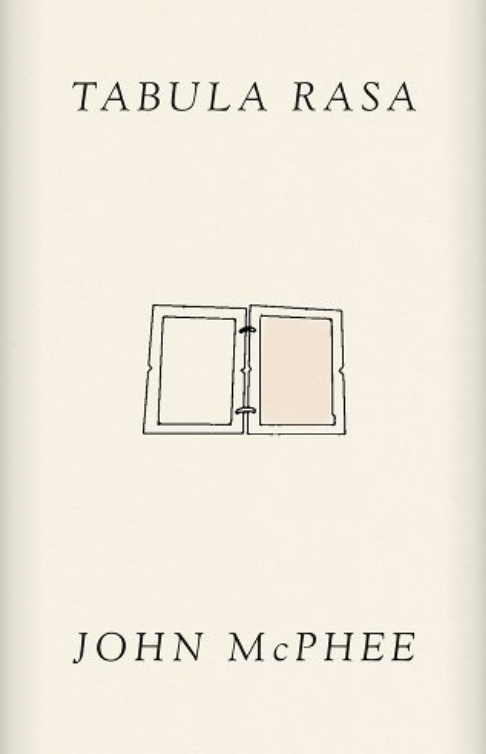
John McPhee, Tabula Rasa (Vol. 1)
FSG, July 11
As previously recommended: John McPhee, often heralded as one of our greatest of nonfiction chroniclers (for good reason), has written about what seems like every imaginable topic, from oranges to Alaskan fur trappers to Wimbledon’s legendary Center Court… But what about all the pieces McPhee didn’t write? Serving as something of answer to that question, Tabula Rasa is a charming compendium of McPhee stories in various states of incompletion, the beginnings and sketches of scores of profiles and wanderings that never quite made it to print. Necessary reading for lovers of serious nonfiction. –JD
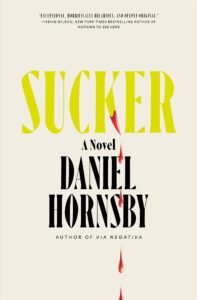
Daniel Hornsby, Sucker
Anchor Books, July 11
As previously recommended: Let Daniel Hornsby invite you into the chum-tank for a rollicking Silicon Valley tech satire in his novel Sucker. Charles Grossheart is a failson with past dreams of punk music production who has stumbled into the orbit of Olivia, an Elizabeth Holmes tech-type who has a “pet forest” in her company’s headquarters, and is working on a project to solve cancer, or mortality, or humanity generally, walking around charismatically with her bald head in remission, swathed in layers of sweaters: her signature look. Needless to say, the motivations at work are darker than at first they seem; this is a parable of vampire capitalism with a room full of deformed monkeys to answer to.
Most importantly, it’s very funny—more Total Recall than Neuromancer, with nods to David Graeber and Joshua Ferris—and Hornsby has a knack for pillorying the vast industries of bullshit that dominate America c. 2023. “I just think the obsession with climate change is so shortsighted,” says one tech-poseur, and perhaps the most damning part of the book is the way poets are folded into the disruption process and housed in a corporate Art Barn. Let Hornsby set us free! –Janet Manley, contributing editor
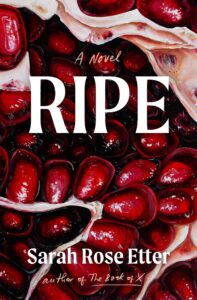
Sarah Rose Etter, Ripe
Scribner, July 11
As previously recommended: Millennial, anti-capitalist malaise-lit isn’t exactly new at this point, but Ripe, while all of those things, manages to skewer workplace politics and the vacuousness of modern existence in a way that makes it feel like a fresh subject. Cassie works in the classic dead-eyed field of technology in Silicon Valley, each day spent working for a morally-vacant company, each day increasingly severing herself from her true personhood, cleaving herself into two beings: the fake, cheery self at work, and the real self, who does cocaine every night by the light of the refrigerator and feels a black hole devouring herself from her center.
Sarah Rose Etter captures the cruel facts of San Francisco well: the dystopia that that eden-like setting has turned into. As Cassie watches the sun set over the water from the train, pink and light and heavenly, a man asks her for a dollar and she refuses. Maybe Etter’s not saying anything radical, but every reminder of the daily cruelties of life in this city (not that it’s just there), and our own complicity in it, is sickening. There’s more to come, more we can’t look away from: things at work take an illegal turn, an unplanned pregnancy occurs, suddenly everything feels very delicate, like one wrong move could shatter the illusion of a life, and the truth is, it probably can. –Julia Hass, Contributing Editor
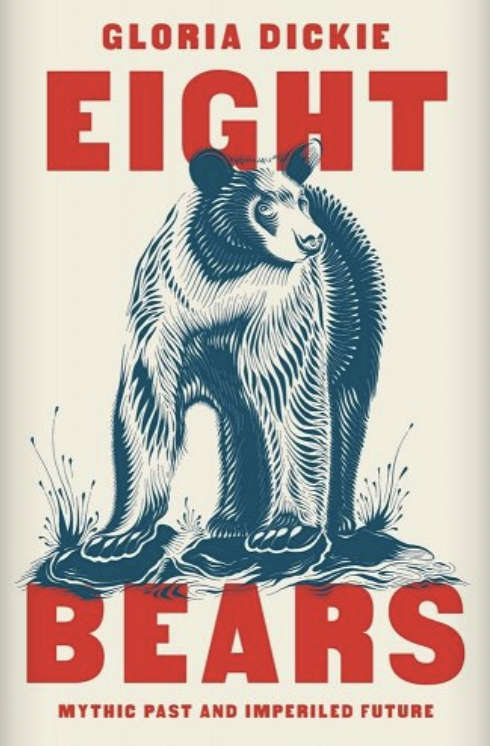
Gloria Dickie, Eight Bears: Mythic Past and Imperiled Future
W.W. Norton, July 11
As previously recommended: How many of the eight extant bear species can you name? The first four aren’t all that hard (think about it), but unless you know, the last four are… tough. Give up? Sorry, you’re just going to have to read nature writer Gloria Dickie’s sprawling travelogue about ursine life on planet earth. Not only does Dickie go in-depth on the latest efforts to save habitat for the eight species, she unpacks the history of each species in relation to humans, from myth to fairy tale to urban legend. As both ecological wake-up call and cultural deep dive, Eight Bears is an important document of what we have, and what we stand to lose. (Ok, fine: Polar, Panda, Black, Brown, and… Asiatic Black, Spectacled, Sloth, Sun.) –JD
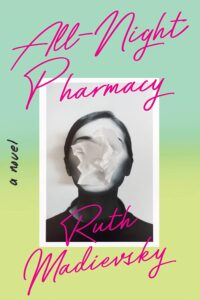
Ruth Madievsky, All-Night Pharmacy
Catapult, July 11
As previously recommended: All-Night Pharmacy feels like reading the diary of your most off-the-rails friend— the one who’s so unpredictable that it’s almost frightening to be around her, but so fun and endearing that you would never leave her side. The friend who you’re always surprised to hear from on Monday because you were certain she died over the weekend.
The book begins with our unnamed narrator following her older sister, Debbie, into a divey LA bar, and from there the novel unravels at a breakneck pace, flying nonstop down a steep street until the final page. Along the way, Debbie goes missing, our narrator falls into a pill addiction, our narrator is helped out of her pill addiction with the help of a hot psychic, gay things happen (yes, with the hot psychic), trips to the former Soviet Union are taken, an iguana is begrudgingly adopted, family trauma is unearthed, and the bonds of sisterhood are questioned.
The book covers about a year in our narrator’s life as she navigates sobriety, queerness, trauma, healing, and family. It doesn’t shy away from the difficult moments, the unexpected moments, the sexy moments. It’s a book about how hard it is to be a person, how it feels to navigate a life. –McKayla Coyle, Publishing Coordinator
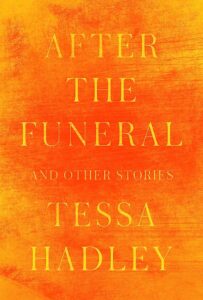
Tessa Hadley, After the Funeral and Other Stories
Knopf, July 11
Tessa Hadley writes the kind of books that many people think are easy to write—we’re overrun with domestic novels about relationships, family, tragedy, life complications, the kind of events and dynamics that everyone has experience with. But Hadley, unlike most people, has the ability to evoke the depth and complexity that life truly holds. After the Funeral—a collection of short stories about siblings, about aging, about death, about obsession— promises to be no different. –JH
ANDREW LIPSTEIN, THE VEGAN
FSG, JULY 11
As previously recommended: I inhaled Andrew Lipstein’s debut novel Last Resort (which just came out in 2022, damn him), a book about storytelling and greed and New York and artistic ownership, so I’m eagerly anticipating his next, which seems to be equally invested in asking questions about the murky nature of morality in our modern world. Andrew Martin called it “a feverish, fantastically surprising parable about guilt, money, and (curveball) the lives of animals,” and writes that it “reads like the unholy offspring of Saul Bellow’s Seize the Day and Julio Cortázar’s cosmic short fiction, or Crime and Punishment for the Brooklyn brownstone set,” which is about as good a blurb as you could get. –Emily Temple, Managing Editor
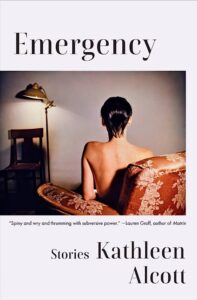
Kathleen Alcott, Emergency: Stories
Norton, July 18
I’ve been pressing Kathleen Alcott’s most recent novel—the multigenerational epic America Was Hard to Find—into the hands of as many people as I possibly can over the past four years. I consider it to be one of the finest works of American fiction of the 21st century, and its omission from 2020’s list of Pulitzer Prize finalists still rankles. I hope that this exquisite collection, Alcott’s first, brings a host of new readers to her entire body of work. Each of these seven stories—about unmoored women dealing with crises of identity, creeping despair, and the psychic wounds left by corrosive men—is a small marvel: intense, cerebral, and tender. –DS
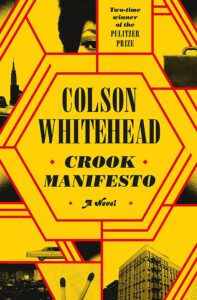
Colson Whitehead, Crook Manifesto
Doubleday, July 18
As previously recommended: Pulitzer Prize winner Whitehead continues his journey through the history of modern New York City, this time taking on the 1970s, as the cast of characters from Harlem Shuffle get swept up in political action, civil unrest, corrupt policing, the rise of Blaxploitation culture, and more. It’s a rich backdrop for Whitehead’s powerful human dramas, and he paints a vivid portrait of people moving between the straight and the crooked world, just trying to get by. –Dwyer Murphy, CrimeReads Editor-in-Chief
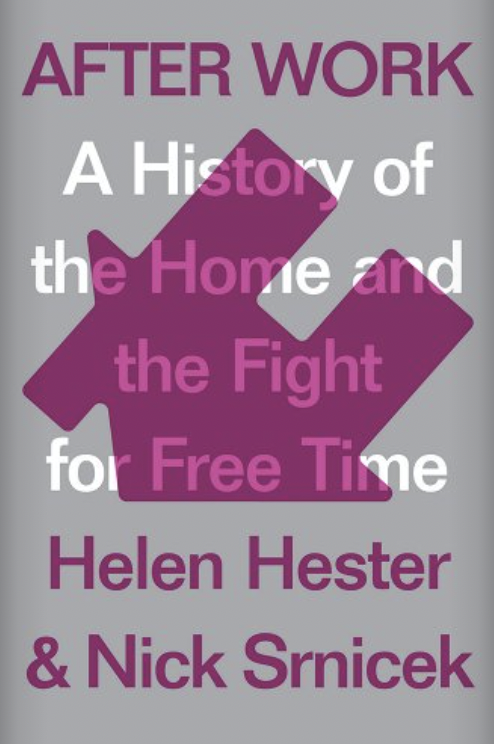
Helen Hester and Nick Srnicek, After Work: The Fight for Free Time
Verso, July 18
As previously recommended: Bookstore shelves are veritably sagging under the weight of corporate-inflected, tech-centric self-help guides to maximizing time or reclaiming time or saving time… But why? What are we doing with all that extra time? This is one of the many questions pondered by Helen Hester and Nick Srnicek in their forthcoming treatise on the nature of so-called free time, particularly as it relates to what we do at home when we’re not working. Obviously, this equation has changed radically in the last few years with the remote work revolution, but Hester and Srnicek take things much further back, looking at the last century of domestic existence, and how the maintenance of the house has become a second job for most of us. The ultimate question, though, that After Work seeks to answer, is how do we change that? –JD
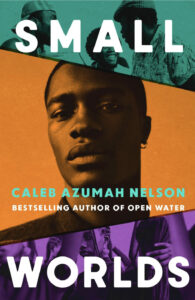
Caleb Azumah Nelson, Small Worlds
Grove Atlantic, July 18
As previously recommended: Azumah Nelson’s follow up to Open Water, his multi-award-winning 2021 debut, is an ode to the West African immigrant community in London, a coming-of-age tale of young love and yearning, and a quietly powerful meditation on intergenerational conflict and trauma. Stephen, a first-generation Londoner born to Ghanaian parents, is a budding trumpeter in deep (and lyrical) love with his orphan bandmate Del, with the transporting power of music and dance, with the little moments of wonder he sees each day in his Peckham community.
Over the course of three summers, we follow Stephen from London to Accra and back again as he deals with the consequences of a major life pivot, and the rift it opens between himself and his more traditionally minded father. Small Worlds is an achingly tender, exquisitely rendered portrait of a truly beautiful soul. –DS
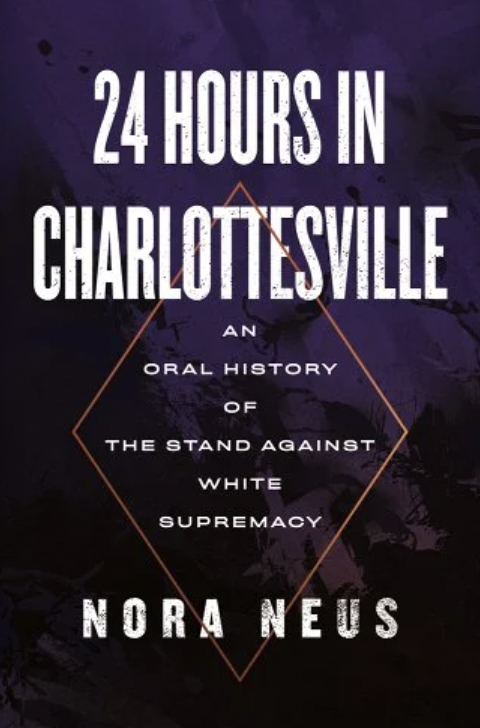
Nora Neus, 24 Hours in Charlottesville: An Oral History of the Stand Against White Supremacy
Beacon Press, July 18
As previously recommended: We seem to live in an era of great forgetting. Events that would have been era-defining 20 years ago now come and go like so many digital headlines, explained away by conspiracy theorists and ideological denialists as just more fake news. That’s why books like Nora Neus’s 24 Hours in Charlottesville are so important, particularly as the very history we teach in public schools is at risk of disappearing altogether. So, a reminder: in August of 2017 a horde (a khaki? a basement? a whine?) of neo-Nazis descended on Charlottesville, Virginia to chant racist slogans and buy out the local tiki torch supplier. But for all their deeply embarrassing posturing, the weekend was no joke: As Neus’s gripping account reminds us, based as it is on multiple first-person accounts, the events of that weekend led up to the tragic murder of anti-racist activist Heather Heyer at the hands of an unhinged white supremacist. This is America, and we cannot forget it. –JD
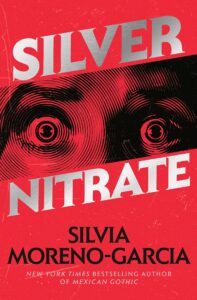
Silvia Moreno-Garcia, Silver Nitrate
Del Rey, July 18
As previously recommended: Both of Silvia Moreno-Garcia’s parents worked in radio, so perhaps that’s part of the inspiration behind this bonkers ode to sound engineering and the (literally magical) power of the human voice. Silver Nitrate features a sound editor and a has-been actor as they befriend an elderly icon from the Golden Age of Mexican cinema, only to find themselves drawn into a vast conspiracy to harness the magic of the silver screen and bring an occult-obsessed Nazi back from the dead. This book has everything, and I could not recommend it enough! –Molly Odintz, CrimeReads Senior Editor
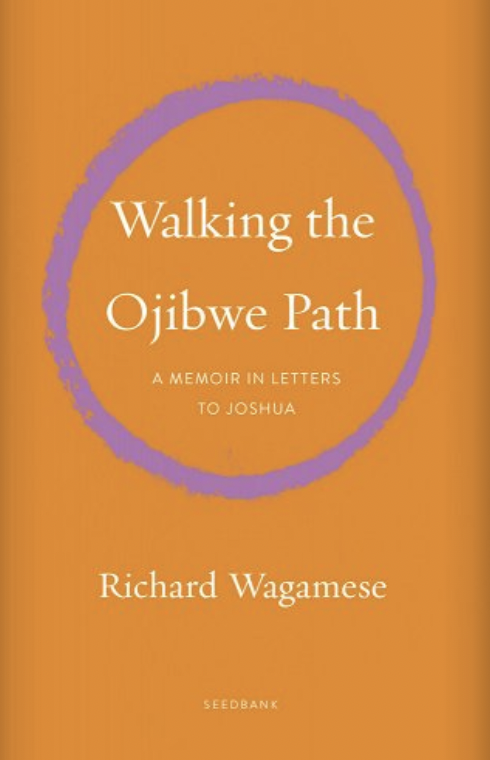
Richard Wagamese, Walking the Ojibwe Path: A Memoir in Letters to Joshua
Milkweed, July 18
As previously recommended: The late Richard Wagamese’s 2012 novel, Indian Horse, is one of the great underrated works of fiction of the 21st century (and though its concerns are much broader, it should also be in conversations about the all-time best sports novels). Walking the Ojibwe Path is a collection of letters that Wagamese—who died in 2017—wrote to his estranged six-year-old son, Joshua, in accordance with the Ojibwe tradition that calls fathers to guide their children through the world. For Wagamese, that means being open and honest about his own troubled path through life, from being separated at an early age from his family, to struggles with substance abuse, to incarceration, to his eventual rebirth as the teller of his own story. There are lessons in this book for all of us. –JD
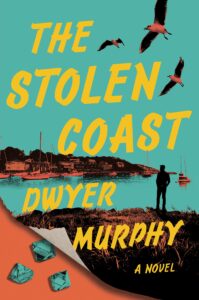
Dwyer Murphy, The Stolen Coast
Viking, July 18
As previously recommended: Look, if it’s a heist novel, I’m probably going to read it. But if it’s a heist novel set on the New England coast featuring retired spies, disenchanted lawyers, and diamond thieves, I’m probably going to enjoy it. If it’s a novel featuring all those things and it’s written by Dwyer Murphy, I’m probably going to love it.
Now, you might be thinking, “Dwyer Murphy is your boss” and yes that is true. But I would not have volunteered to endorse this book if I weren’t also such a fan. His previous novel, An Honest Living, a literary Chinatown-inspired PI mystery about rare books set in fading, post-millennium New York City, was an absolute delight. I’d say I tore through it, but that’s too aggressive a description for what is one of the most tranquil reading experiences I’ve ever had.
Dwyer’s prose is direct and straightforward, but with an air of the fanciful. He is a watercolorist when it comes to genre and style—the allusions and frameworks are all visible, but he doesn’t lay them on thick. He lets everything softly, gently blend together—a bit wistfully, a bit meditatively. His heroes are wandering thinkers, navigating bustling modern worlds and finding romance in them, too. I can’t think of a better combination for Dwyer’s stylings than a heist novel set along the misty, craggy seaside. In short, I cannot wait for The Stolen Coast. –Olivia Rutigliano, CrimeReads Associate Editor
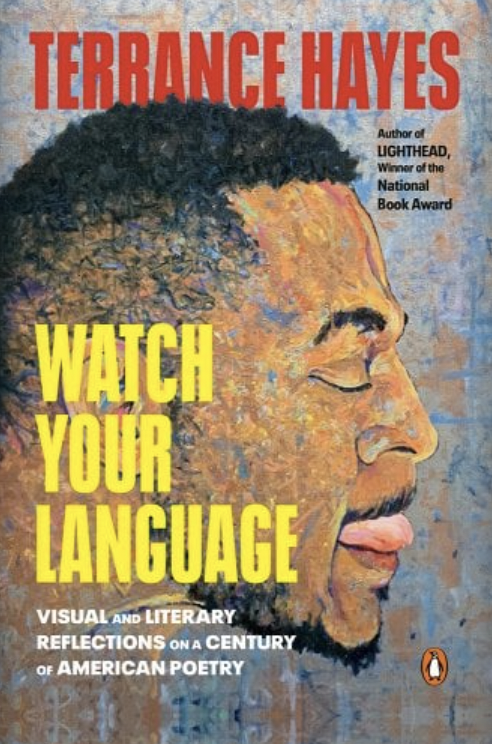
Terrance Hayes, Watch Your Language: Visual and Literary Reflections on a Century of American Poetry
Penguin Books, July 25
As previously recommended: When one of America’s great poets assembles his poetic origin story in a collage-like collection of mini essays, illustrations, prose fragments, and assorted feuilletons of a life in poetry, it behooves us all to pay attention. In examining his own path to poetry, Terrance Hayes also manages to excavate a century of nearly forgotten African American poets, reminding us all of the very narrow poetic canon that predominates to this day in the academy. Essential reading. –JD
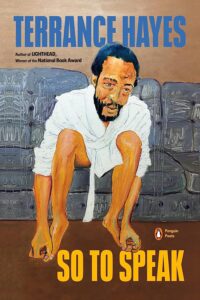
Terrance Hayes, So to Speak
Penguin Books, July 25
A new collection by National Book Award winner Terrance Hayes is a Poetry Event. All the more reason to celebrate: His seventh collection will be published simultaneously with Watch Your Language, a work of (illustrated) literary criticism. Hayes’ poems never fail to play, thrillingly, with the constraints of form, and they engage with culture, past and present, while remaining deeply rooted in the personal. Don’t miss this one. –JG
Wang Xiaobo, tr. Yan Yan, Pleasure of Thinking: Essays
Astra House, July 25
Previously untranslated essays from celebrated Chinese novelist and thinker Wang Xiaobo, who died in 1997, make up a collection described by the publisher as “as riotous as it is contemplative…examin[ing] modern life with the levity missing from so much of today’s politico-cultural discourse.” Dive in if you dare! –ET
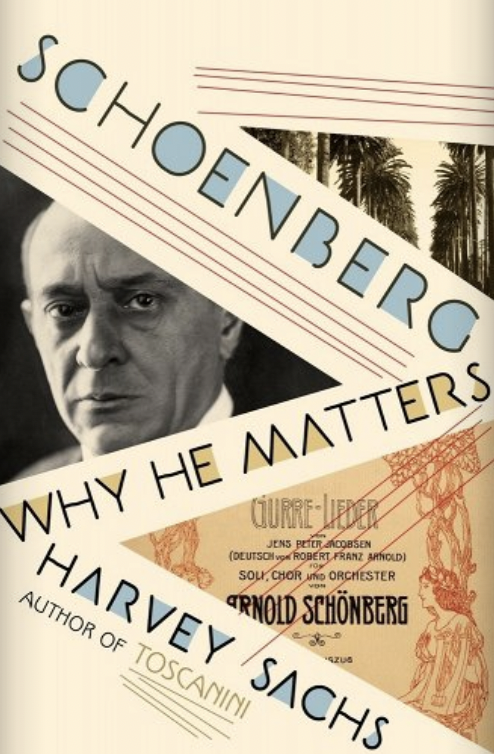
Harvey Sachs, Schoenberg: Why He Matters
Liveright, July 25
As previously recommended: Arnold Schoenberg is not an easy listen. The frowny father of the 12-tone musical system revolutionized so-called classical music with his complex, superficially dissonant compositions. Schoenberg caused an enormous stir in the 1920s with his studies in atonality, music that put the burden on audiences to think through what they were listening to.
But as a Viennese Jew, his angular compositions were readily labeled degenerate by the Nazis, and Schoenberg soon made his way to America where as a teacher and composer he would have a huge influence on a generation of post-war avant garde musicians. But as Harvey Sachs recounts, Schoenberg’s music gradually fell out of style, to a point where it’s hardly ever performed—and for Sachs, that’s a problem. Why He Matters makes the case for Schoenberg’s importance in the avant garde canon, arguing that anyone who cares about 20th-century classical music needs to care about Arnold Schoenberg. –JD
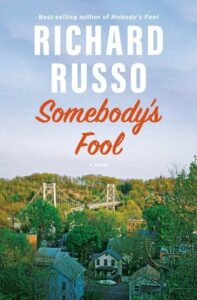
Richard Russo, Somebody’s Fool
Knopf, July 25
The latest novel from the Pulitzer Prize winning author of Empire Falls and Straight Man (one of the best campus novels in recent history, recently adapted into a series starring Bob Odenkirk), completes the North Bath trilogy begun with Nobody’s Fool in 1993. A good excuse to start exploring Russo’s work if you haven’t yet! –ET
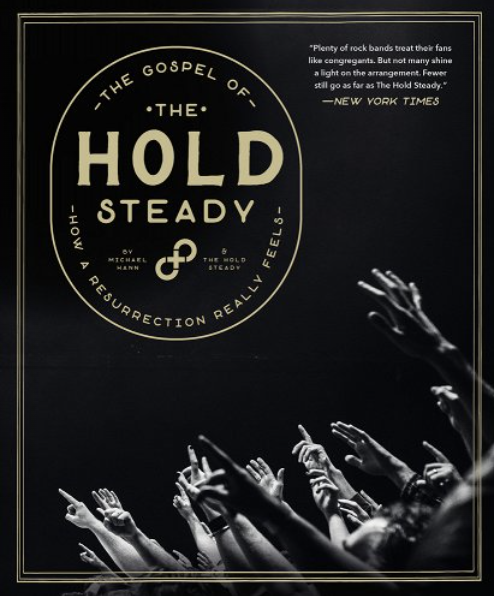
Michael Hann, The Hold Steady, The Gospel of The Hold Steady: How a Resurrection Really Feels
Akashic Books, July 25
As previously recommended: There’s a very short list of contemporary American songwriters who would also make wonderful short story writers and The Hold Steady’s Craig Finn is on it. As virtuosic chroniclers of a Midwestern demimonde that gives lie to the pervasive myth of the wholesome heartland, The Hold Steady has earned its place as one of the great American rock bands of the 21st century. And now, in The Gospel of The Hold Steady, the storytellers will have their story told, through essays, firsthand oral histories, and over 200 photographs. A must-have for both Hold Steady diehards and rock and roll fans of all persuasions. –JD
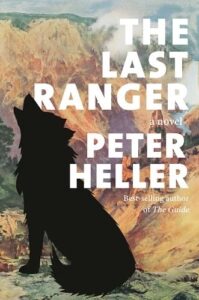
Peter Heller, The Last Ranger
Knopf, July 25
From the bestselling author of The Dog Stars and The River comes a novel about a Yellowstone National Park ranger who chases down poachers and wrangles tourists, until he becomes embroiled in a mysterious range war. The result is, as the publisher describes it: “a portrait of the American west where our very human impulses–for greed, love, family, and community–play out amidst the stunning beauty of the natural world.” –ET
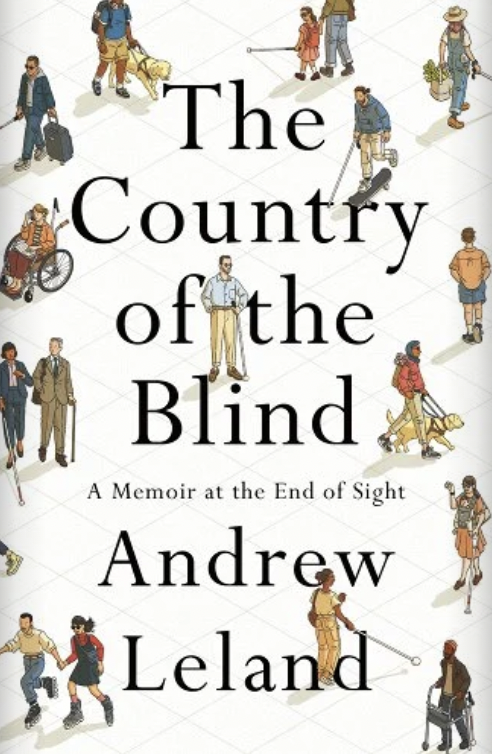
Andrew Leland, The Country of the Blind: A Memoir at the End of Sight
Penguin Press, July 25
As previously recommended: As a teenager, Andrew Leland was diagnosed with retinitis pigmentosa, a rare eye disease that results in progressive vision loss over the course of years or decades. Now, at midlife, Leland embarks on a journey to understand the cultural history of blindness and where he fits into it. What follows is a moving and fascinating account of the blind community—its politics, customs, and pioneers—and a personal exploration of making a sometimes frightening, sometimes invigorating life transition as a writer, husband, and father. A brilliant investigative memoir written with humor and heart. –ES
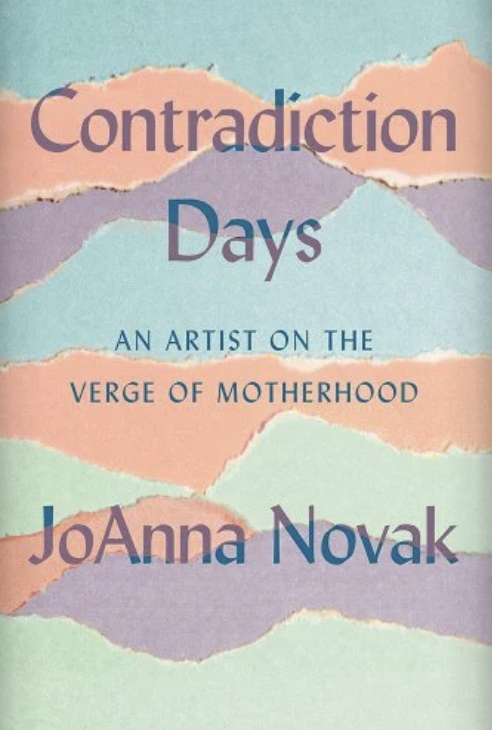
JoAnna Novak, Contradiction Days: An Artist on the Verge of Motherhood
Catapult, July 25
As previously recommended: We’re big fans here at Lit Hub of JoAnna Novak’s poetry, which is intense, often unexpectedly discursive, and most certainly always unflinching. It is this last quality that Novak brings to bear on her memoir, Contradiction Days, in which she recounts a harrowing month midway through her pregnancy when, appalled by her doctor’s reaction to her depression, she instead looks to the artist Agnes Martin to help navigate the darkness. And by look, we mean mirror, as Novak heads to Taos to live as Martin did: no phone, no email, no contact with her husband, total solitude. What follows for Novak is a series of revelations about her work, her body, and what it is to be both artist and mother. –JD
AUGUST
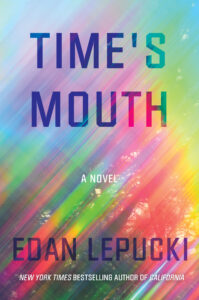
Edan Lepucki, Time’s Mouth
Counterpoint, August 1
As previously recommended: Another Northern California novel, different than the gray, tech-centric San Francisco works of today—this one covers a lot of ground, starting with the gritty hippie years, conjuring the grainy nostalgia paired with an undercurrent of violence that those years held, spanning forward to the 80s, back again to the late 50s.
Time, in this novel, is a slippery thing, both in the writing, and in the plot. For Ursa time is tangible, something with edges, something to be pulled and entered. When she feels a certain tingling, she knows she is ready to reenter the years of her life, the past that the rest of us feel is solidly behind us. Her gift comes to her suddenly, and as she strengthens it, she gains a following of women who are pulled to her magnetism, her cult-like figure.
When her son, Ray, is older, he and his pregnant lover run away from Ursa and the control she expends over the women and children of her flock. The novel progresses to tell of Ray’s daughter, Opal, and the gift she also possesses—time, and its secrets, will all be revealed, dangerous and dark and glittering. For fans of Matrix and The Girls, Time’s Mouth is a mesmerizing and confident novel about power, desire, and the depths of our bonds. –JH
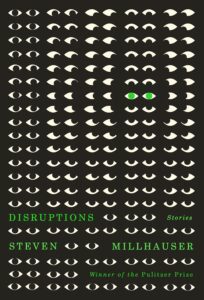
Steven Millhauser, Disruptions: Stories
Knopf, August 1
The master of the short story—though no slouch with novels either—is back with another collection, eighteen stories of the distorted Americana that he does so very well. As a die-hard Millhauser fan, I will be first in line to read them. –ET
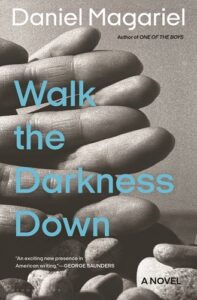
Daniel Magariel, Walk the Darkness Down
Bloomsbury, August 1
Magariel tells the story of a couple in a crumbling coastal town dealing with profound grief after the death of their daughter. As wrenching as it is beautifully wrought, this novel is, at times, difficult to read—but is very much worth the devastation. Also, Annie Proulx described the sentences in this novel as “burning flags,” which may be the fastest way to get me to read anything. –JG

Ben Purkert, The Men Can’t Be Saved
Overlook Press, August 1
As previously recommended: Sometimes I wonder if the men know that us non-men are talking about them. Ben Purkert’s witty novel The Men Can’t Be Saved, about a down-and-out copywriter with one good tagline, suggests yes, they do. Seth, the blustery, intoxicated ad-man wannabe, is fired from his job and suffers a crisis of identity, but never feels completely convinced any of it is really his fault (“Was I really so bad?”), still managing to devalue the women he encounters (of his mother: “What had she ever made except me?”) as he spirals into getting high on prescription drugs and attending Kabbalah. Seth might be a numpty with words, but Ben Purkert sure knows what he’s doing. One of many novels grappling with the alienating forces of the attention economy, it’s also a cathartic workplace read. –JM
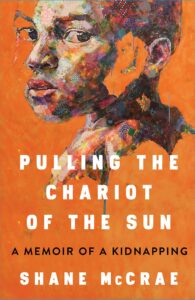
Shane McCrae, Pulling the Chariot of the Sun: A Memoir of a Kidnapping
Scribner, August 1
I’m a longtime admirer of Shane McCrae’s gorgeous poetry, so I’m eager to read his memoir. McCrae was kidnapped from his Black father as a young child and raised by his white supremacist grandparents, who denied his Blackness. I have no doubt that McCrae’s rendering of his childhood and what came after will be dazzling, and this memoir an essential one. –JG
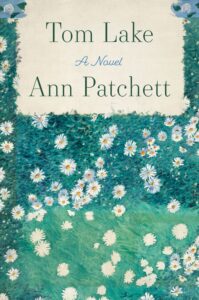
Ann Patchett, Tom Lake
Harper, August 1
As previously recommended: Who is better, more nuanced, or more surprising on matters of love and family than Patchett? In her newest novel, Tom Lake, she begins with the return of three daughters to the family home in Michigan, spring 2020, an auspicious time. The daughters want a story from their mother: the story of her long-ago romance with a now famous actor with whom she was involved in earlier days. Patchett takes us on that heady voyage into the past, with a delicately observed story that is also constantly shifting the ground beneath our feet.
In Patchett’s novels, there’s always a strange mix of registers and reactions, something like dread or foreboding, balanced against a joyful effervescence that pushes us headlong toward whatever is coming next. She also remains a master of the set piece, creating unforgettable moments in time for her tumultuous families. –DM
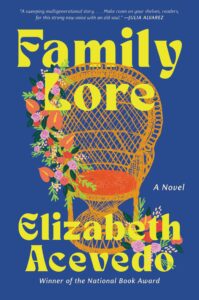
ELIZABETH ACEVEDO, FAMILY LORE
ECCO, AUGUST 1
As previously recommended: Family Lore is the first novel for adults from Elizabeth Acevedo, who won the National Book Award in Young People’s Literature for her 2018 debut, The Poet X. It is the story of one big Dominican-American family, centered on four sisters—one of whom has an uncanny ability to predict when people will die. So when she asks to bring the family together for a living wake, everyone shows, bringing all their secrets and troubles with them. Sounds very juicy. –ET
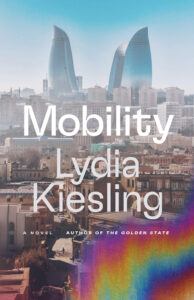
Lydia Kiesling, Mobility
Crooked Media Reads, August 1
As previously recommended: I wouldn’t have imagined a petronovel was the obvious next step for Kiesling, whose debut The Golden State is beloved among those who were looking for early motherhood to get a worthy literary treatment, but the execution of this satire-turned-tragedy about the international strata of NGO/foreign policy/oil and gas technocrats running this planet makes it feel like a natural and necessary next step for a writer exploring the strings between one generation and the next.
Modeled on Upton Sinclair’s Oil!, Mobility follows Bunny, a diplomatic brat, from her adolescence on her dad’s posting in Baku, Azerbaijan, where she first encounters the oil choads and NGO hangers-on of the U.S. foreign policy apparatus, to an aimless but privileged adulthood working as an admin then girlboss with the “renewables” arm of an oil and gas consultancy in Texas—throughout the novel, her hands are on the hyperobject of anthropogenic decline, as were her parents’ before that.
Momentum speeds as the pages turn; characters live lavishly on student loans they will later have to repay; they profit off the price of an oil barrel, but “[are] not accustomed to thinking of themselves as people who had responsibilities to be bad or good.” Bunny’s family breaks apart, she readopts her birth name Elizabeth at the same time as oil companies rebrand and “pivot,” the climate crisis lapping at the door, but late turns in the plot aren’t enough to stave off an ending I promise will take the wind out of your sails. Genuinely a brilliant book, the best piece of motherhood literature I’ve read this year, and a perfectly urgent summer read for a 110-degree day. –JM
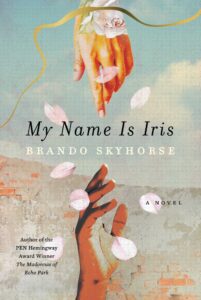
BRANDO SKYHORSE, MY NAME IS IRIS
AVID READER PRESS, AUGUST 1
As previously recommended: From the PEN/Hemingway Award–winning author of The Madonnas of Echo Park, a novel set five minutes in the future, in an America in which all citizens wear high-tech identification wristbands—all citizens who can prove “parental citizenship,” that is, leaving second-generation Americans like Iris out in an increasingly violent and frightening cold. –ET
JAMEL BRINKLEY, WITNESS
FSG, AUGUST 1
As previously recommended: Jamel Brinkley’s debut story collection, A Lucky Man, was something of a sensation upon its release in 2018, receiving a raft of major literary award nominations (including National Book Award, PEN/Robert W. Bingham Prize for Debut Fiction, the Story Prize, and the John Leonard Prize nods), as well as near-unanimous critical acclaim (the Guardian called it “near faultless”), so expectations are high for his follow-up. These ten stories in this new collection (which comes with blurbs from luminaries like Justin Torres, Raven Lelani, and Angela Flournoy, and Yiyun Li), are portraits of intimacy and friendship, grief and mourning, all set “in the changing landscapes of contemporary New York City.” Expect this to be one of the standout collections of the year. –DS
JIMIN HAN, THE APOLOGY
LITTLE, BROWN, AUGUST 1
As previously recommended: Jimin Han’s latest novel, “part ghost story and part family epic,” promises to be tooth-sinkingly great. I mean: “In South Korea, a 105-year-old woman receives a letter. Ten days later, she has been thrust into the afterlife, fighting to head off a curse that will otherwise devastate generations to come.” It sounds like the kind of sprawling and ambitious novel that is wildly satisfying to read when handled well, and given the brilliance of Han’s previous novel, A Small Revolution, I have no doubt it will be. Get excited for this one. –JG
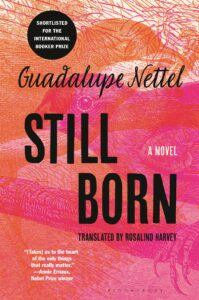
Guadalupe Nettel, tr. Rosalind Harvey, Still Born
Bloomsbury, August 8
As previously recommended: To call Guadalupe Nettel’s Still Born a novel about motherhood—or even, more accurately, maternal ambivalence—feels too simple, but it’s a factual enough place to start. Our narrator, Laura, is so opposed to having children that she tries to convince her friends that “procreating [is] a hopeless mistake.” She feels she has an ally in Alina, another career-driven, arts-focused woman in Mexico City—until Alina announces that she’s pregnant.
A rare medical condition predicts that Alina’s child will not survive, and Laura finds herself in an unexpected position, hoping against hope that her friend becomes a mother after all. Meanwhile, Laura grows close with a young neighbor boy and his mother, who’s contending with her own demons. It’s immediately apparent why Valeria Luiselli calls Nettel “one of the leading lights in contemporary Latin American literature.” I can’t wait to read the rest of her works in translation. –ES
Diane Williams, I Hear You’re Rich
Soho Press, August 8
You can always count on Diane Williams, head literary weirdo and “godmother of flash fiction,” for a good time—if you consider having your mind blown to be a good time, which you should. Her latest book has 33 short pieces guaranteed to shift the world around you, if only for a moment. –ET
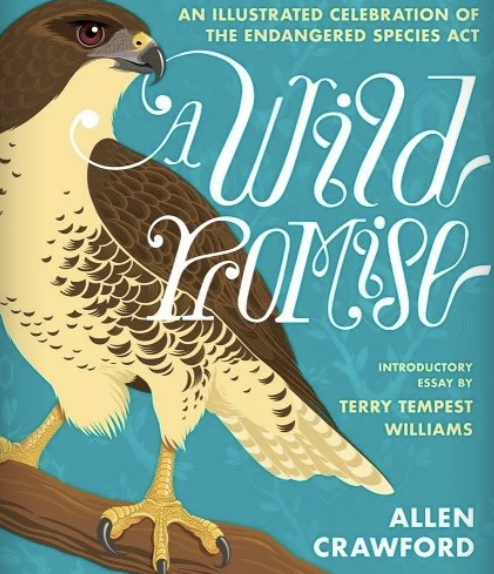
Allen Crawford and Terry Tempest Williams, A Wild Promise: An Illustrated Celebration of The Endangered Species Act
Tin House, August 8
As previously recommended: One of the more frustrating aspects of our slow and inevitable descent into climate catastrophe is that we actually know what we need to do. The solutions are there. Take, for example, the Endangered Species Act of 1973, a groundbreaking piece of bipartisan legislation that finally recognized the immeasurable harm humans were causing to the natural world, and began to take seriously the need to protect the most vulnerable species and their habitat. As Wild Promise reveals—through artist Allen Crawford’s beautiful renderings of over 80 animals, withy text by the great Terry Tempest Williams—we have it in us to save the world, we just have to do it. –JD
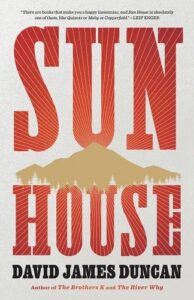
David James Duncan, Sun House
Little, Brown, August 8
There aren’t too many living novelists who can claim to have written not one but two bestselling cult classics—other than David James Duncan, author of The River Why (1983) and The Brothers K (1992). Duncan is beloved for mixing stories of the natural world with a search for spiritual transcendence, and his latest—which centers on a community in Montana that draws “spiritual refugees, urban sophisticates, road-weary musicians, and local cowboys”—sounds like it will continue very much in that same vein. –ET
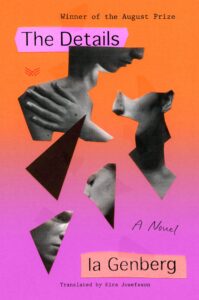
Ia Genberg, tr. Kira Josefsson, The Details
HarperVia, August 8
As previously recommended: It’s difficult to describe the experience of reading Ia Genberg’s English language debut (winner of the August Prize, Sweden’s most prestigious book award) beyond saying that it resembles a fever dream—which is appropriate, given that the narrator herself is in bed with a rising fever, as she recalls four important people from her past: Johanna, an ex-girlfriend, now famous; Niki, a friend who disappeared; Alejandro, a former lover; and Birgitte, her daughter. Genberg’s prose is a feat of characterization, a triumph of lending language and profundity to observations of daily life. At a tight 150 pages, I didn’t read it so much as subconsciously absorb it. –ES
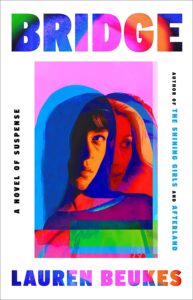
LAUREN BEUKES, BRIDGE
MULHOLLAND, AUGUST 8
As previously recommended: I’m a big fan of Beukes’ horror-tinged, speculative suspense novels—she is apparently an endless well of terrifyingly good ideas. For instance: in this novel, a woman who can’t make up her mind about anything finds an object she thought was imaginary in her dead mother’s freezer: the “dreamworm,” which opens up a path to all other realities—and a million and one dangers. Fun! –ET
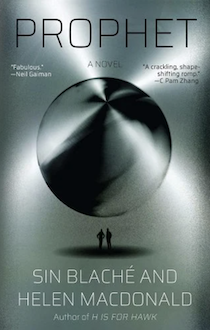
Helen Macdonald and Sin Blaché, Prophet
Grove Atlantic, August 8
As previously recommended: I had heard Prophet (accurately) described as a genre mash-up, blending the best of techno-noir, dystopian sci-fi, and espionage procedural (with a dash of queer romance). And while it is all those things, at its heart Helen Macdonald and Sin Blaché’s tightly wound (yet somehow tender?) mystery-sci-fi-thriller is a philosophical novel. And not because it inserts page-long disquistions into its characters’ mouths on the dangers of nostalgia or the elusiveness of truth but rather because it instigates in its readers uncomfortable explorations of those very territories (well, at least in this reader).
How, you ask?
At the risk of spoilers, the plot follows an unlikely pair of security service lifers as they team up to investigate the sudden appearance of a classic American diner in an English field. As more such odd manifestations occur (along with an unseemly death or two) the duo soon discovers a strange substance behind it all that induces in people a nostalgia so intense that it instantiates in the physical world.
And if that’s not far enough into irreality for you, one of the investigators—Rao, a hard-living adrenaline junkie and periodic MI6 operative—is blessed/cursed with the ability to divine the truth of things, both figuratively and literally. Rao is joined by Adam, who is as repressed and straightlaced as his partner is chaotic, and who uses Rao like a human divining rod to guide them through the ever-thickening mystery of “Prophet,” the aforementioned substance.
In the hands of most writers, Rao’s special talent would come across as just another gimmicky super power, but Macdonald and Blaché treat Rao’s black and white relationship to truth with wary ambivalence, understanding that what might seem to most like a blessing is, in practice, a curse. For what is life without mystery? And at what point does nostalgia grow so strong it derails our lives? –JD
JAMES MCBRIDE, THE HEAVEN & EARTH GROCERY STORE
RIVERHEAD, AUGUST 8
As previously recommended: The arrival of a new novel by National Book Award-winner James McBride (The Good Lord Bird, Deacon King Kong)—a masterful storyteller who always brings a deep well of humanity and humor to his exuberant, expansive tales—is a cause for celebration. The Heaven & Earth Grocery Store (another amazing title) is set in a run-down neighborhood in a small Pennsylvania town in 1972. Peopled by a cast of immigrant Jewish and Black characters, and centered around the mystery of skeleton found at the bottom of a well, this sounds like another knockout ensemble piece from McBride. –DS
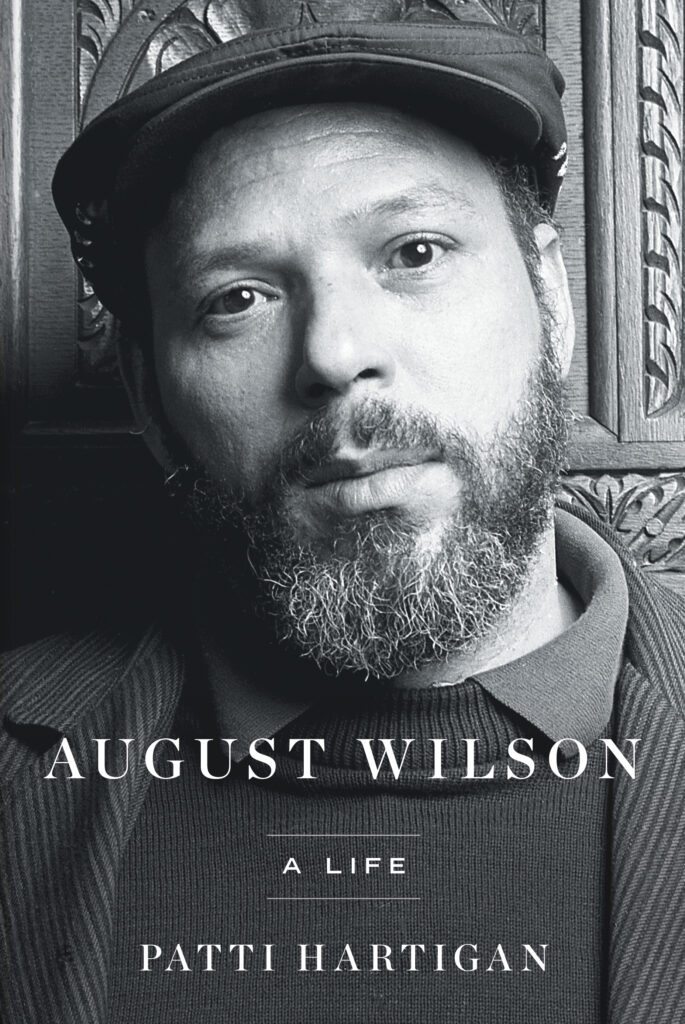
Patti Hartigan, August Wilson: A Life
Simon & Schuster, August 15
As previously recommended: August Wilson died far too young in 2005, at just 60 years of age. It has also been far too long for us to get a definitive biography of one America’s finest playwrights, whose chronicles of Black life in 20th-century Pittsburgh will be read and performed well into the 22nd century. Biographer and theater critic Patti Hartigan interviewed Wilson many times when he was alive, and has supplemented that material by talking to those closest to Wilson about his life, his art, and the immeasurable influence he has had on both Black culture and the broader world of the American stage. –JD
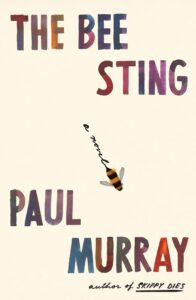
Paul Murray, The Bee Sting
FSG, August 15
As previously recommended: Trust Paul Murray to make 650 pages feel too short. Seriously. Murray—best known for his wonderful 2010 novel Skippy Dies—has returned with a wildly entertaining, completely convincing, and deeply moving family saga, told with such deft management of time and mystery and perspective that I defy anyone not to get completely swept away by it. There’s no way to properly describe it so that you understand, except that in it Murray unspools the lives of four relatively ordinary people with such brilliant specificity and extravagant empathy, in cool-water prose mixed with his trademark wry darkness, that it’s difficult to let them go at the end.
Speaking of the end: my sincere apologies for the following, but……. fuck!!!!!!! That’s all I have to say about that until you’ve read it yourself, after which my DMs are open to discuss. Again: fuck! Best ending of the year? –ET
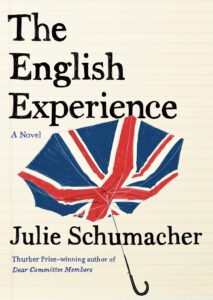
JULIE SCHUMACHER, THE ENGLISH EXPERIENCE
DOUBLEDAY, AUGUST 15
As previously recommended: Alert, alert: Julie Schumacher is back with the third and final book in the hysterical campus novel trilogy (Dear Committee Members, The Shakespeare Requirement) starring beleaguered academic Jason Fitger, who to the dismay of all must chaperone Payne University’s annual “Experience: Abroad” to—you guessed it—the UK. I’m actually trying to wait read this because I want to be able to savor it completely, but I don’t think I’m going to be able to wait very long. –ET
Jenn Shapland, Thin Skin: Essays
Pantheon, August 15
Alexander Chee calls this essay collection from the author of My Autobiography of Carson McCullers, who was literally diagnosed with think skin—or “extreme dermatologic sensitivity”—”a wrenching, loving and trenchant examination of feminism, nuclear weapons production, healthcare, queerness and American life unlike any I can think of, in essays that give lessons in pushing this form to the limit,” and writes that “the resulting collection is iconoclastic, electric, illuminating, and the honesty and art in these essays bring with them a series of welcome awakenings.” Sold. –ET
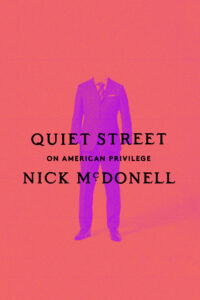
Nick McDonell, Quiet Street: On American Privilege
Knopf, August 22
Social media has made the acknowledgment of one’s privilege a kind of parlor game, wherein one confesses to certain (obvious) advantages while also making sure to inject an element of struggle: “Yes, my father owned an emerald mine in South Africa but I work really hard.” Rarely, though, does someone write an entire book directly addressing their privilege and, importantly, that of their peers.
With Quiet Street, Nick McDonell (whose father is a co-founder of this website) grapples with his very one percent Upper East Side origins, a childhood spent shuttling between private schools and private jets, enjoying a life well out of reach for almost all of us. Though McDonell eventually rejected the ease his upbringing afforded him, becoming a war correspondent in Iraq and Afghanistan, he was still able to make that choice. In that sense it is hard—nearly impossible—to get fully beyond one’s own frame of socioeconomic reference, but it’s important that people like McDonell try in ways more meaningful than a Tweet. –JD
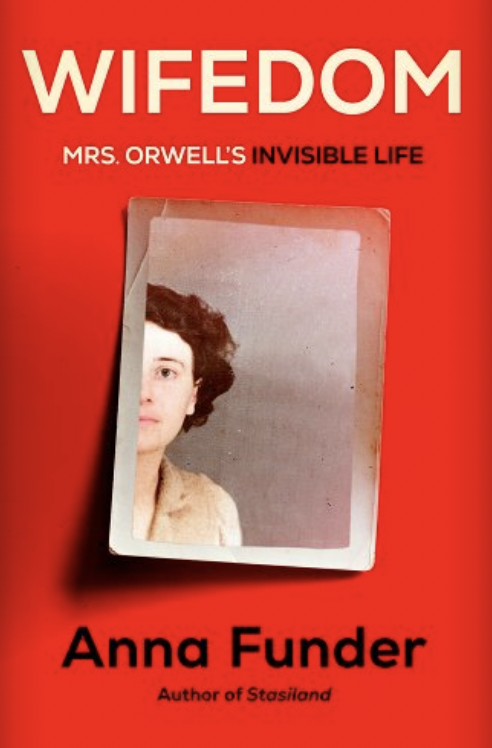
Anna Funder, Wifedom: Mrs. Orwell’s Invisible Life
Knopf, August 22
As previously recommended: Ah, the life of the literary spouse, typing up manuscripts, making tea, doing laundry, scrubbing solecisms… Such was the lot of the likes of Vera Nabokov, Sophia Tolstaya, Valerie Eliot (and, sure, let’s add Leonard Woolf in there for a little variety). But until now no one has had much to say about Eileen O’Shaughnessy, a writer who married another writer, George Orwell, in 1936. As Anna Funder reveals in her genre-bending biography of the hitherto forgotten O’Shaughnessy, the Orwells’ was a marriage of literary equals, as George relied on Eileen for much, much more than afternoon tea. –JD
Nicole Sealey, The Ferguson Report: An Erasure
Knopf, August 22
In which Sealey, one of Lit Hub’s favorite poets, revisits the investigation into the 2014 killing of Michael Brown by a police officer in Ferguson, Missouri—and the ensuing report that showed the depth of the city’s racist policies and practices—via the illuminating process of erasure. –ET
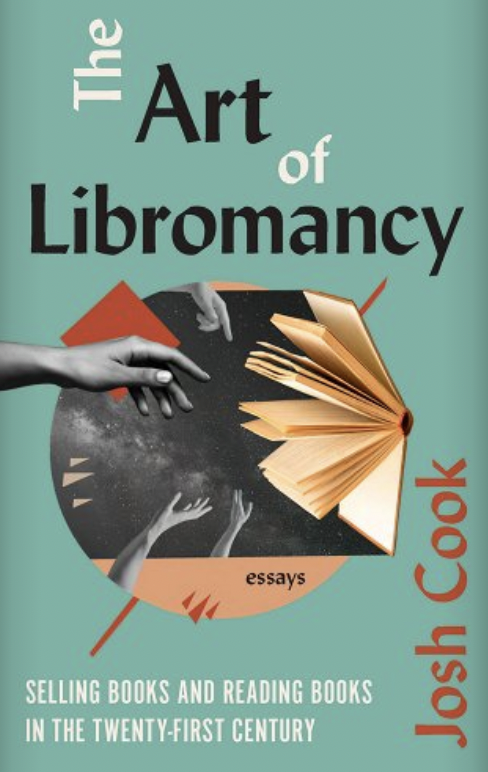
Josh Cook, The Art of Libromancy: On Selling Books and Reading Books in the Twenty-first Century
Biblioasis, August 22
As previously recommended: In a society awash in political misinformation, corporate consolidation, government book banning, and endless algorithmic distraction, can we all agree that independent bookstores are more important than ever? Yes, sure, but what’s it like to sell books amidst the aforementioned crazy times? With The Art of Libromancy, bookseller Josh Cook at once soberly enumerates the ever-present risks faced by small bookstores while also maintaining a healthy optimism about the joys and possibilities of the profession. It is a hopeful act to open a bookstore, Cook seems to suggest, and it is only that kind of hope that we’ll see us through this mess. –JD
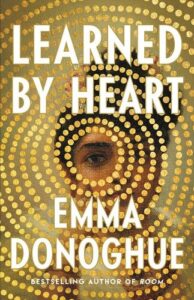
Emma Donoghue, Learned by Heart
Little, Brown, August 29
Donoghue’s latest novel is based on the true story of Eliza Raine and Anne Lister, two fourteen-year-olds—one an orphaned heiress, the other an inveterate tomboy—who fell in love at the Manor School for Young Ladies in 1805. Sure to be equally fascinating—and by all accounts, completely heartbreaking—for those who know their story already, and those who don’t. –ET
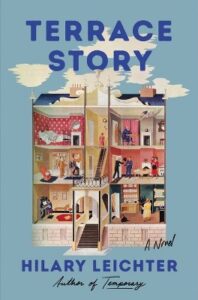
Hilary Leichter, Terrace Story
Ecco, August 29
As previously recommended: Terrace Story is an expansion on Hilary Leichter’s National Magazine Award-winning short story of the same name, which was published in Harper’s in 2020; I remember loving it then, but re-encountering it now, after having a baby, I found it even more devastating. But that story is only the beginning of this novel, in which Leichter follows her idea—of a door that seems to lead to a magical terrace in Annie and Edward’s otherwise cramped apartment, but only when Annie’s coworker Stephanie is over—to its logical conclusion, and then far beyond. What more could happen? I thought at the end of the first chapter, but it turns out: whole worlds and lifetimes unfurled in just 200 pages. This is an intelligent and sneakily moving book, perfect for afternoons when you wish you were nowhere other than where you are. –ET
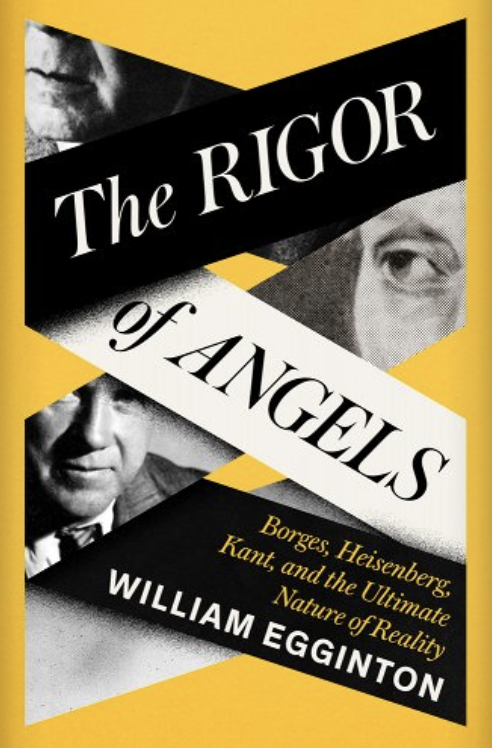
William Egginton, The Rigor of Angels: Borges, Heisenberg, Kant, and the Ultimate Nature of Reality
Pantheon, August 29
As previously recommended: If forced to read just one of the titular thinkers in William Egginton’s lively intellectual history, the obvious answer would be Borges, whose prismatic erudition never drifted too far into the opacity (or prolixity, if we’re being honest) of Kant. And to his credit, Heisenberg, whose mathematical divinations—at least for some—straddled the line between physics and philosophy, wrote a perfectly accessible memoir, and had a way with a good soundbite. But what do these three have in common? For Egginton, each in their way—the poet, the physicist, and the philosopher—grappled with the fundamental disconnect between our interior selves and the reality of the broader world, and did so in sublimely beautiful fashion. As The Rigor of Angels shows, there is still much to be learned from these intellectual giants. –JD
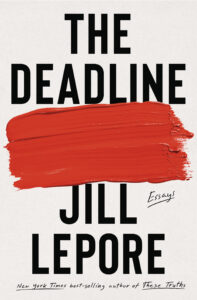
Jill Lepore, The Deadline: Essays
Liveright, August 29
The latest book from Jill Lepore, Harvard professor and staff writer at The New Yorker is a collection of essays that offers “a prismatic portrait of Americans’ techno-utopianism, frantic fractiousness, and unprecedented―but armed―aimlessness.” Lepore is a great, generous writer as well as an omnivorous historian, and there’s sure to be plenty to dig into here. –ET
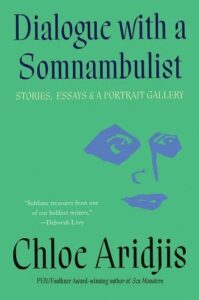
Chloe Aridjis, Dialogue with a Somnambulist
Catapult, August 29
The latest book from the author of Sea Monsters, which won the 2020 PEN/Faulkner award for Fiction, is subtitled “Stories, Essays, & a Portrait Gallery,” which is interesting enough (Aridjis has included pen portraits of people like Leonora Carrington and Mavis Gallant) and comes with an introduction by my favorite bonkers writer Tom McCarthy. If that’s not enough (it is), Claire-Louise Bennett describes the varied short pieces within as “Exquisite dreamworks that exert alternative logics and make a compelling case for the idea that we are born into fantasy and only gradually acquire a sense of a much narrower and more rational reality.” Bring me back to the fantasy! –ET
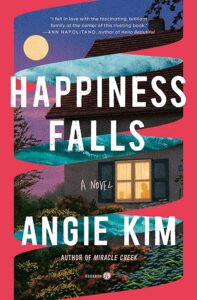
Angie Kim, Happiness Falls
Hogarth Press, August 29
Angie Kim once again combines an intense character study with a searching mystery, this time after her narrator’s husband disappears, and police are interested in quickly pinning it on her nonverbal son. Kim uses the parallel investigations of police and family to explore the complex dynamics of interracial marriage, Asian and biracial identity in America, and the nuances of raising a child with special needs. You’ll want to savor every word as Kim plunges the depths of human action and finds love at the center. –MO
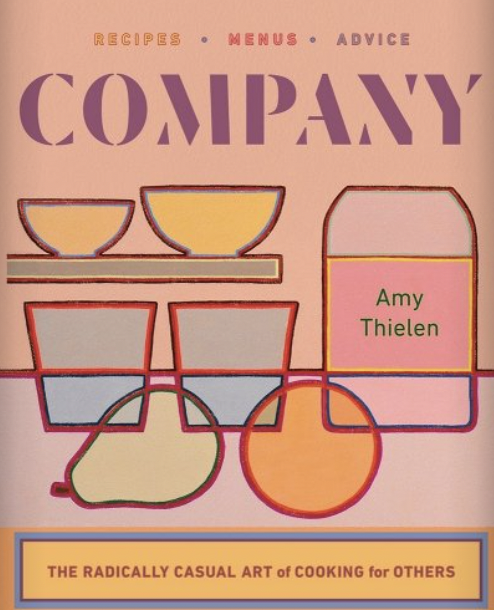
Amy Thielen, Company: The Radically Casual Art of Cooking for Others
W.W. Norton, August 29
As previously recommended: Does anyone anywhere ever want to have a Zoom cocktail party ever again? As the Covid pandemic recedes, and people begin to gather again in each other’s homes, some of us might need a refresher course in the fine art of the dinner party. Who better than Amy Thielen, the James Beard award-winning author of The New Midwestern Table (a modern classic of farm-to-table comfort food) to remind us that a good dinner party is less about the food than it is about the spirit of family—chosen or otherwise—that we all need in our lives. –JD
SEPTEMBER
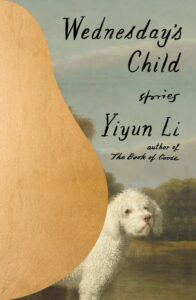
Yiyun Li, Wednesday’s Child
FSG, September 5
What I love about Yiyun Li’s work is that her voice never fails to surprise and captivate me, whether she’s writing from the perspective of a young woman in rural, postwar France (The Book of Goose), a grandmother of 17 revisiting a bygone love affair (Must I Go), or herself (Dear Friend, from My Life I Write to You in Your Life). So I’m particularly excited to ping-pong about in her new story collection, which gathers tales of loss and longing from the past decade and features a cast of characters whom I can’t wait to meet. –ES
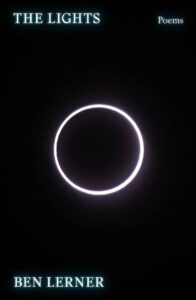
Ben Lerner, The Lights: Poems
FSG, September 5
Some people will probably pick up Ben Lerner’s new book of poetry expecting the ease of accessibility promised by The Topeka School—but Lerner’s poetry is where he lets loose, ignoring anyone’s conventional wishes for succinctness and poignancy. It strikes me as the space he gives himself to figure out his own place in the mess of the world. This collection was written over the past 15 years, years in which his career has erupted and his life has changed, all against the backdrop of calamity and chaos, of joy and wonder. Lerner’s mind is huge and encompassing, his thoughts rove and leap and sink and stretch; it’s a gift that he allows us to be there with him. –JH
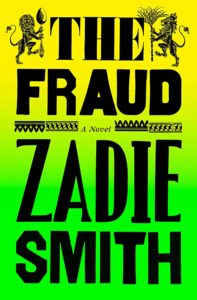
Zadie Smith, The Fraud
Penguin Press, September 5
Zadie Smith’s first novel since 2016’s Swing Time is based on Tichborne case, a lengthy English trial in the 1880s over a man’s claim that he was the presumed dead son of a wealthy family—and thus entitled to a hefty inheritance. Smith has folded this historical episode—already rife with drama and intrigue—into a larger character-driven narrative about truth and deception and what we choose to believe. It’s hard to imagine this being anything but this year’s blockbuster. –JH
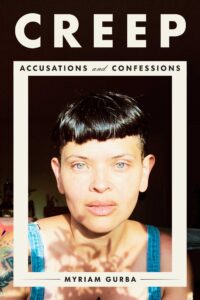
Myriam Gurba, Creep: Accusations and Confessions
Avid Reader Press, September 5
Gurba’s forthcoming book is “an informal sociology of creeps” that implicates everyone from “Joan Didion to her former abuser, everything from Mexican stereotypes to the carceral state.” With personal essays that transform into astute pieces of cultural criticism, Gurba explores the way creeps haunt our books, our schools, and our homes—and how we can work to challenge them. –Emily Firetog, Deputy Editor
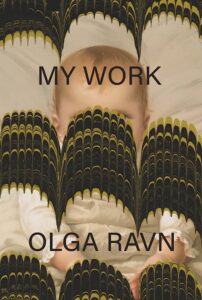
Olga Ravn, tr. Sophia Hersi Smith & Jennifer Russell, My Work
New Directions, September 5
Olga Ravn’s last novel, The Employees (2018), tells the story of a space vessel crewed by humans and humanoids alike, whose mission to explore a new planet descends into chaos when they’re confronted with mysterious local artifacts. On the surface, My Work seems quite different in scope: it tells the story of Anna, a new mother, overwhelmed and depressed in Stockholm, writing and reading through the gamut of experiences her situation entails. But something tells me that interacting with humanoids and sentient space objects have more in common with the first stages of motherhood than one might think. –ES
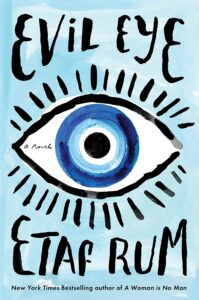
ETAF RUM, EVIL EYE
HARPER, SEPTEMBER 5
As previously recommended: The bestselling author of A Woman is No Man is back with a novel about a Palestinian woman who thinks she has finally constructed the perfect life—away from her conservative family, living in the suburbs, teaching at a local college, raising her two daughters much differently than she herself was raised. But things (as they tend to) begin to go awry, and Yara’s mother blames a family curse. “I was mainly inspired by the Evil Eye—a supernatural belief in a curse brought upon by a malevolent glare—which was a common superstition in my household growing up, as well as my Palestinian-American community in Brooklyn,” Rum told Today. But what, for Yara, does that even mean? –ET
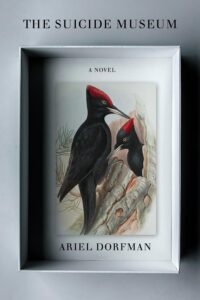
Ariel Dorfman, The Suicide Museum
Other Press, September 5
An unusual duo—a wealthy Holocaust survivor and a struggling writer—team up to understand the 1973 death of the Chilean president in this wide-ranging novel that’s both complex investigation and emotional history. Ariel Dorfman is best known as the author of Death and the Maiden, and The Suicide Museum once again uses a mixture of fact and fiction to process the trauma of Chile’s dictatorship. –MO
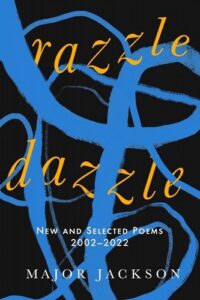
Major Jackson, Razzle Dazzle: New and Selected Poems 2002-2022
Norton, September 5
An essential collection for poetry fans, bringing together the best of two decades of Jackson’s work, drawing from five volumes and including more than three dozen new poems. –ET
Sean Michaels, Do You Remember Being Born?
Astra House, September 5
The third novel from Scotiabank Giller Prize winner (and founder of Said the Gramophone) Sean Michaels examines what happens when an aging poet and longtime art monster agrees—for a great deal of money—to co-author a poem with an AI poetry bot named Charlotte. The result is a novel, as Alix Ohlin writes, that “evades simple binaries about art and technology to tell a story about families, legacies, and connection; most of all, it’s a love letter to language itself.” –ET
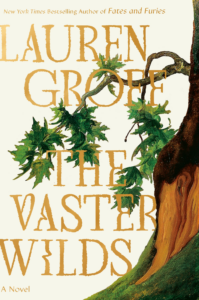
Lauren Groff, The Vaster Wilds
Riverhead, September 12
In Groff’s latest, a young girl escapes a colonial compound, leaving behind a violent crime and a starving community, and tries to make her way to what she imagines might be her salvation in the north, pushing herself ever faster, ever harder to evade the man sent after her, the strangers living on the land, and the brutal, beautiful land itself. Kind of like Das Boot in the wilderness—a weird one, no doubt, but one I couldn’t stop reading. –ET
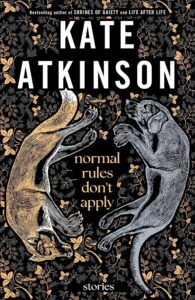
Kate Atkinson, Normal Rules Don’t Apply: Stories
Doubleday, September 12
Pulled from stories that have been published over the past decade-plus. Normal Rules Don’t Apply has all the Atkinsonian ingredients you’d expect: Toys who witness the horrors of growing up, a daily apocalypse you can set your watch to, babies housed in cupboards, hapless parents, children flattened by cars, akilter language, and an enduring if unremarkable main character—Franklin—who might be surprised to find himself living so rich a life in the criss-crossing tales. There’s a solid existential bent to the collection, which also features an average intellect, Kitty, working to design the Earth from scratch like a full-stack engineer on learner plates, a royal who falls for an American actress, and parallel tales that bend at the last minute to collide with sturdy netball calves. This collection is lots of fun—she really makes it look easy. –JM
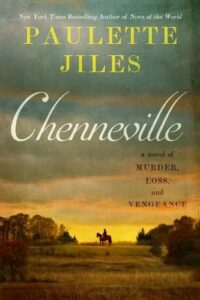
Paulette Jiles, Chennevill
William Morrow, September 12
Those looking for exquisite historical fiction from a master of the mood should look no further—the latest from Paulette Jiles (News of the World, Simon the Fiddler) is set just after the Civil War, following a Union soldier who comes home to find that his sister’s family has been murdered, and must—despite his traumatic head injury—track down the man who did it. –ET
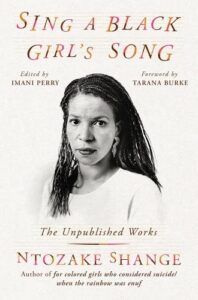
Ntozake Shange, Sing a Black Girl’s Song: The Unpublished Works of Ntozake Shange
Legacy Lit, September 12
As America seems to be regressing at a dizzying pace—at the behest of a loud and hateful minority—it is more important than ever that we celebrate voices like Ntozake Shange’s. As a playwright, poet, and sometimes essayist, Shange worked at the intersection of Black liberation and radical feminism (a space that was often difficult to occupy, at least in the context of the male-dominated Black Arts Movement). As half this country seeks to deny Black history and its attendant culture, the work of artists like Shange must be preserved and celebrated. This posthumous collection of essays, poems, and plays—many being published for the first time—does just that. –JD
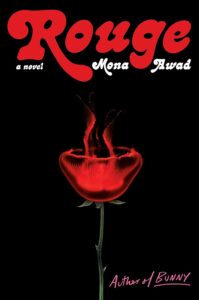
Mona Awad, Rouge
Simon & Schuster/Marysue Rucci Books, September 12
Awad’s latest is a dreamy (or perhaps nightmarish) gothic fairy tale about a mother, a daughter, and their shared obsession with their own beauty. Like all of Awad’s novels, it reels you in, shakes your brain until you’re not sure what you’re seeing, and then floats off cackling on a cloud of smoke. Metaphorically, that is. I’d forgive you for not being sure. –ET
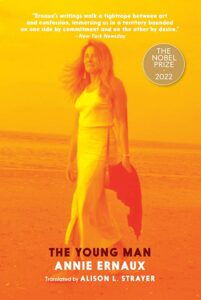
Annie Ernaux, tr. Alison L. Strayer, The Young Man
Seven Stories, September 12
The winner of the Nobel Prize in Literature in 2022, Annie Ernaux went from cult favorite to household name in an instant. The Young Man, Ernaux’s first book since becoming a laureate, continues in her favorite thematic vein: it’s the story of a love affair. But an affair is never just an affair for Ernaux—it’s the locus around which to revolve many questions, about identity, desire, and most of all, time and its all inarguable forces. –JH
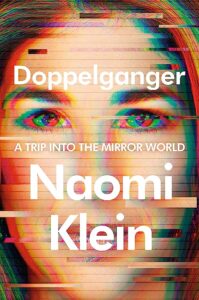
Naomi Klein, Doppelganger: A Trip into the Mirror World
FSG, September 12
Well folks, Naomi Klein has finally done the inevitable and turned this classic tweet* into a whole book.
“This book is a departure for me,” Klein says. “It’s more personal, more experimental, and while it’s not about my doppelganger in any traditional sense, it does explore what it feels like to watch one’s identity slip away in the digital ether, an experience many more of us will have in the age of AI. Mostly, it’s an attempt to grapple with the wildness of right now—with conspiracy cultures surging and strange left-right alliances emerging and nobody seeming to be quite what they seem. Doppelganger is my attempt at a usable map of our moment in history—but to make it, I had to get lost a few times.” Sounds like the kind of book we need right now. –ET
*For those who don’t click through, a reminder:
If the Naomi be Klein
you’re doing just fine
If the Naomi be Wolf
Oh, buddy. Ooooof.
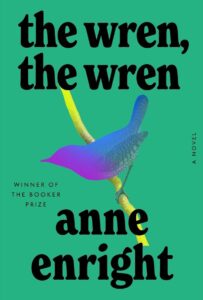
Anne Enright, The Wren, The Wren
Norton, September 19
Anne Enright is a master at unpacking the strange and complex relationships within families in perfect, crystalline prose. In her new novel, Nell leaves her mother Carmel’s home to find her voice as a writer. But she seems to be living in the shadow of her grandfather, the celebrated Irish poet Phil McDaragh, who’s love poems are celebrated by the public, but paint a very different man from the father Carmel knew. A story about inheritances—of poetry, of abandonment, and of love. –EF
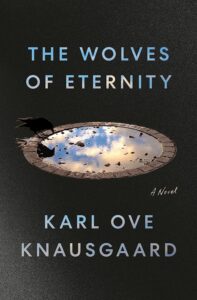
Karl Ove Knausgaard, tr. Martin Aitken, The Wolves of Eternity
Penguin Press, September 19
Most lovers of Karl Ove Knausgaard (at least in the English-speaking world) love him for his startling literary compulsion to reveal himself (and those around him). As an autofictionalist he is very auto-, and does it with a hypnotic torrent of words that somehow alchemizes the mundane into page-turning urgency. The Wolves of Eternity will mark something of return to conventional fiction (in English, at least) for Knausgaard, as he unspools a novel in dual but intersecting timelines, revealing the lives of others—and how they are all connected—in mid 1980s Norway and present-day Russia. –JD
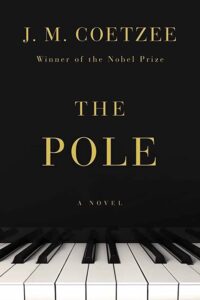
J.M. Coetzee, The Pole
Liveright, September 19
The latest novel from the Nobel Prize-winning author of Disgrace concerns a Polish pianist who falls in love (or in lust) with a married woman. Not interested at first, she soon finds herself drawn into her pursuer’s orbit—which is not to say he has won. Coetzee is a master of shifting power dynamics and complex relationships; this slim book should be a treat. –ET
Sam Sax, Pig
Simon & Schuster, September 19
The third collection from the author of Madness, winner of The National Poetry Series and Bury It, winner of the James Laughlin Award from the Academy of American Poets takes as its starting point (you guessed it) the noble pig, with its many connections and connotations (“farm animal, men / masculinity, police and state violence, desire, queerness, global food systems, religion / Judaism and law”) in order “to reimagine various chaotic histories of the body, faith, ecology, desire, hygiene, and power.” Can’t wait to dig in. –ET
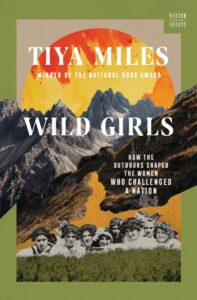
Tiya Miles, Wild Girls: How the Outdoors Shaped the Women Who Challenged a Nation
Norton, September 19
Award-winning Miles crafts a meditative narrative-history of women outdoors; from Harriet Tubman who was forced to labor on a Maryland plantation, to Louisa May Alcott in New England, to an Indigenous women’s basketball team in Montana. “Wild Girls… reveals the impact of the outdoors on women’s independence, resourcefulness, and vision.” –EF
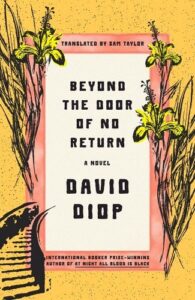
David Diop, tr. Sam Taylor, Beyond the Door of No Return
FSG, September 19
Diop’s first novel since he was the first French writer to win the 2021 International Booker Prize (for At Night All Blood is Black) is a mystery box of stories-within-stories informed by Senegalese oral tradition that sends us from Paris in 1806 to the Senegalese bush, with many legends and questions and projections in between. –ET
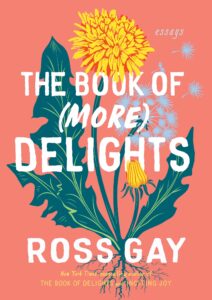
Ross Gay, The Book of (More) Delights
Algonquin, September 19
The reason to get excited about this one is right in the title. The follow-up to Gay’s 2019 The Book of Delights is guaranteed to be enormously delightful. Gay is a master at amplifying the delights all around us in a way that feels both profound and conversational. The Book of Delights had the feel of an intimate letter from your smartest and most optimistic friend, and I simply can’t wait for more. –JG
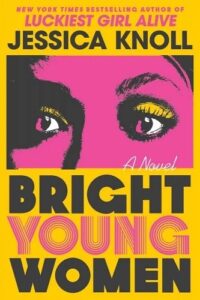
Jessica Knoll, Bright Young Women
S&S/MarySue Rucci, September 19
Jessica Knoll is a careful writer, and this, her third novel, is a perfect match for her cold dissection of social mores and her fierce rage at misogyny. Knoll takes on the story of Ted Bundy, told from the perspective of a student who survives a horrific attack on a sorority house. She then must fight to preserve her sisters’ dignity and get the truths of their last moments as the world around them fetishizes their killer and attempts to make jokes of their deaths. Some may claim that the crime genre is rift with misogyny; those people have not read Jessica Knoll. She tears apart the restrictive world of women’s roles and lays bare the purpose of such hobbles: to keep women from making a scene, to keep them from seeking justice, and most of all, to keep them from seeking their own lives. –MO
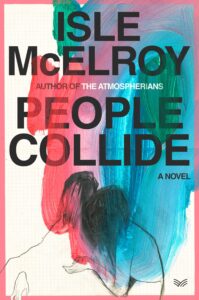
Isle McElroy, People Collide
HarperVia, September 26
Imagine that you’re a newly married husband and you wake up one morning in your wife’s body. Now imagine that your wife (presumably in your body) is missing. If there’s anyone I trust to run with this premise, it’s Isle McElroy, a nonbinary author whose debut novel, The Atmospherians—about a summer camp for problematic men—reads like part satire, part thriller, part earnest search for understanding. I imagine that combination of sensibilities will also infuse this story of gender, partnership, and transformation. –ES
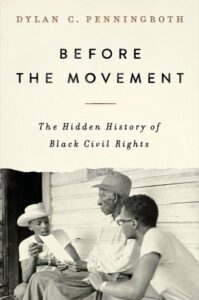
Dylan C. Penningroth, Before the Movement: The Hidden History of Black Civil Rights
Liveright, September 26
It is not hyperbole to say there’s a war on history happening in America right now. As dozens of states deny teachers the right to share the darker corners of this country’s past—from slavery to Jim Crow to internment—in order to protect the “feelings” of white people, we must, at every turn, push back. Dylan C. Penningroth’s pre-history of the Civil Rights Movement, which examines Black traditions of private law and “the rights of everyday use,” is the kind of work we need more of. Before the Movement makes the case that the underpinnings of 20th-century Civil Rights stretch back to the middle of the 19th century, and grew from Black legal acumen manifested in worship, scholarship, and the details of daily life. –JD
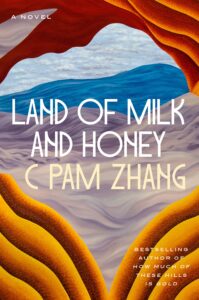
C Pam Zhang, Land of Milk and Honey
Riverhead, September 26
C Pam Zhang burst onto the scene in 2020 with her dazzling debut novel How Much of These Hills Is Gold, an epic dismantling (and reimagining) of the myths of the American West which was hailed by many as one of the debuts of the year. Her hotly anticipated sophomore effort is the story of a despondent young chef, in a near future where crops are rapidly disappearing, who escapes her dying career to take a job at a luxurious (and smog free) mountaintop colony peopled by the global elite and seemingly free of the world’s climate troubles. “An exploration of desire and deception, privilege and faith, and the roles we play to survive,” Land of Milk and Honey sounds a bit like The Menu meets Ballard’s High Rise, and I can’t wait to tuck in. –DS
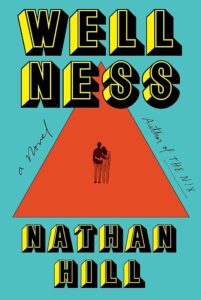
Nathan Hill, Wellness
Knopf, September 26
A novel about two people: their initial bond, their shared coming of age, their marriage, and their constant quest for a spiritual center. Jack and Elizabeth once led deeply urban, artistic lives, but now they find themselves married in suburbia, attempting to fill the creeping void with supplements, yoga, and self-betterment. It’s a tale as old as time, that of dreams dashed and the looming threat of unfulfillment, but with a contemporary wellness spin. –JH
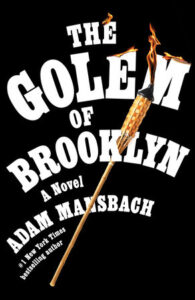
Adam Mansbach, The Golem of Brooklyn
Random House, September 26
An art teacher makes a golem. The golem is very confused. Why is he back? What dangers are the Jewish people facing? Why did G-d allow such an idiot to bring him life? And where is his penis? Luckily Miri, the Yiddish-speaking ex-Hasid clerk at the corner store, is ready to help them out, as is his weed dealer, Waleed, and a host of other colorful neighborhood characters, including a bodega cat. What follows is a picaresque misadventure, a dive into Jewish history, and a warning about the American present. If you want more golems, Aden Polydoros has a novel coming out in October called Wrath Becomes Her: a teenage girl is killed in the Holocaust and brought back as a clay creature, seeking vengeance. –MO
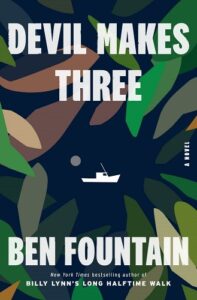
Ben Fountain, Devil Makes Three
Flatiron, September 26
Fountain—author of Billy Lynn’s Long Halftime Walk—sets his second novel in the aftermath of the 1991 Haitian coup d’état, in which President Jean-Bertrand Aristide was forcibly deposed by the military. In the turmoil, Matt, an American expat who has made his living taking tourists on scuba dives, and his Haitian best friend Alix, try to make ends meet by searching shipwrecks rumored to contain treasures—but find a heap of trouble in the process. –ET
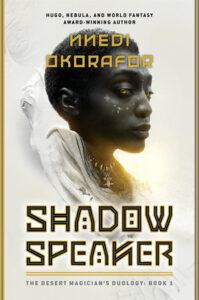
Nnedi Okorafor, Shadow Speaker
DAW, September 26
Shadow Speaker is a gorgeous new edition of an early Okorafor novel that had sadly gone out print. Ejii Ugabe, the novel’s heroine, loses her father at a young age. Now 15, she’s off to find his killer. Her father was not a good man, and the killer is a cipher, as is Ejii’s motivations for finding him. Revenge? Consolation? Perhaps a plan that requires assistance? Keeping great novels in print takes a village, and I rejoice every time a publisher brings another book back into circulation, but especially this one. –MO
Cameron McWhirter and Zusha Elinson, American Gun: The True Story of the AR-15
FSG, September 26
I can’t tell you how sorry I am that we need this history of the AR-15, from Wall Street Journal reporters McWhirter and Elinson, which seeks to answer the question: “How did the same gun represent the essence of freedom to millions of Americans and the essence of evil to millions more?” And yet need it we do. –ET
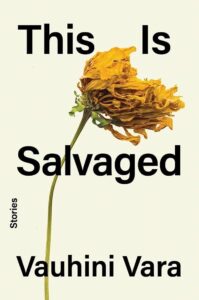
Vauhini Vara, This is Salvaged: Stories
Norton, September 26
Inside each strange but recognizable story in This Is Salvaged you’ll find lines that knock you flat and emotions that bend back on themselves. Amid grief for a dead sibling, there is labial sweat and the solemn rite of washing a loved one’s face and sackballs; in the dark, a drunk aunt crawls toward her sleeping niece with near-religious reverence for the little pile of her body; an artist gets a grant to build a replica of Noah’s ark but doesn’t finish before the funds dry up. What led to so many underlines in my copy, though, was Vara’s loose philosophy around the roles and connection shared by the women going in and out of her stories, which feeds into zippy, spirited, and touching moments. –JM
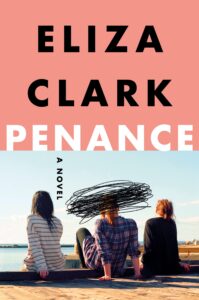
Eliza Clark, Penance
Harper, September 26
Eliza Clark’s Boy Parts stunned me with its grotesque grand guignol violence and reversal of the male gaze, and Penance is just as good, although somewhat kinder to its characters. Penance is a take on the infamous Slenderman case (a real-life case linked to the undiagnosed schizophrenia of one attempted murderer and the folie a deux madness that gripped both her and her friend), but with different motivations for the killers. When three high school girls murder their rival, the world is quick to condemn them for their monstrosity, but as we read the novel, we see that they are monsters made, not monsters born. Of particular note is a scene in which one traumatized character tortures her Sims. I then went down a rabbit hole of how people torture their Sims and…wow. –MO
OCTOBER
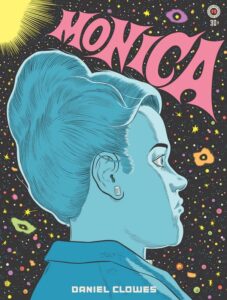
Daniel Clowes, Monica
Fantagraphics, October 3
New Daniel Clowes! ‘Nuff said, really, but if you need details, the latest book from the author of Ghost World is being described as a “genre-bending thriller” and also “a multilayered masterpiece in comics form that alludes to many of the genres that have defined the medium—war, romance, horror, crime, the supernatural, etc —but in a mysterious, uncategorizable, and quintessentially Clowesian way that rewards multiple readings.” Can’t wait. –ET
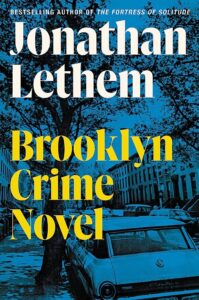
Jonathan Lethem, Brooklyn Crime Novel
Ecco, October 3
The latest novel from the bard of Brooklyn is a metafictional collage that tells the story of some fifty years in one neighborhood (roughly Cobble Hill). It’s funny and wise and weird, and populated with chapter titles like How Much for the Dog? (1979) and No Name White Boys (generally) and Lies (whenever and wherever lies appear) and Having a Nemesis (subliminal). Having recently left the city, this love letter to Brooklyn is just what I need. –ET

Jesmyn Ward, Let Us Descend
Scribner, October 3
Two-time National Book Award winner Jesmyn Ward is back, after a six-year absence, with a reimagining of American slavery set in the years leading up to the Civil War. Let Us Descend is the story of Annis, an enslaved girl sold off by the plantation owner who fathered her, who serves as the reader’s guide through the nightmarish landscape of the 19th-century American South, as well as the spirit world beyond. Ward’s 2017 novel Sing, Unburied, Sing, and her 2013 memoir Men We Reaped, are two of the most stirring, painful, beautiful works of that decade; I think about them both often and cannot wait for her latest. –DS
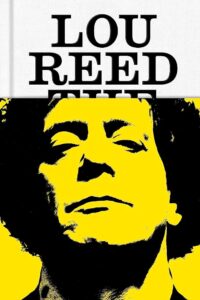
Will Hermes, Lou Reed: The King of New York
FSG, October 3
It’s been ten years since Lou Reed died; there are worse ways to mark the anniversary than reading this book by Rolling Stone writer Will Hermes, author of Love Goes to Buildings on Fire, described by its publisher as “the definitive narrative of Reed’s life and legacy, dramatizing his long, brilliant, and contentious dialogue with fans, critics, fellow artists, and assorted habitués of the demimonde.” For lovers of Lou Reed and New York City alike. –ET
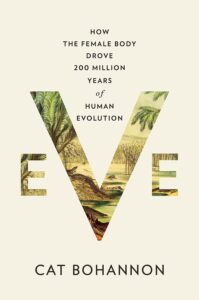
Cat Bohannon, Eve: How the Female Body Drove 200 Million Years of Human Evolution
Knopf, October 3
This promises to be an extremely informative, comprehensively researched encapsulation of the female form throughout time. Too often overlooked, and under-investigated (women were only required to be in clinical trials starting in the 80s), Eve offers itself as a corrective, a revision to the historically male-centered way of viewing the body. –JH
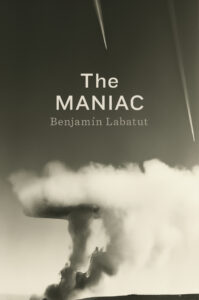
Benjamin Labatut, The MANIAC
Penguin Press, October 3
Labatut’s English language debut is portrait of John von Neumann—a polymath who invented game theory and the first computer, AI, and cellular automata. It’s voiced by a chorus of his wives, friends, colleagues, and enemies, structured in a tryptic spanning a hundred years. Blurring the lines of historical fact and fiction, there’s never been a timelier moment to explore the growth of artificial intelligence and the dangerous possibilities of our most likely future. –EF
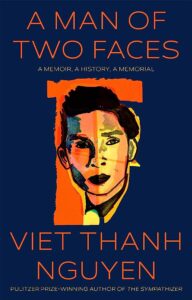
Viet Thanh Nguyen, A Man of Two Faces: A Memoir, A History, A Memorial
Grove Atlantic, October 3
Viet Thanh Nguyen’s debut novel, The Sympathizer, became a near-instant sensation upon its release in 2015. It won 2016 Pulitzer Prize for Fiction (as well as a drift of other major literary awards), sold over a million copies, and has now been adapted for the screen as a HBO miniseries (set to air in 2024). In the seven years that followed, Thanh Nguyen published two works of nonfiction, a collection of short stories, and a sequel to The Sympathizer—all to critical acclaim.
Now, with his first memoir, the Guggenheim and MacArthur fellow utilizes the biting wit and probing intellect so resonant in his fiction to reflect upon ideas of refugeehood, colonization, and the relationship between Vietnam and America—all through the prism of his own experience as a child refugee, son, and father. –DS
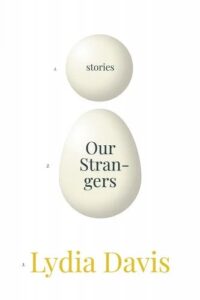
Lydia Davis, Our Strangers
Bookshop Editions, October 3
The new Lydia Davis collection, Our Strangers, is the first and thus far only title published by Bookshop, the Amazon alternative that supports local bookstores. In keeping with Bookshop’s ethos, Our Strangers will only be available at independent bookstores and libraries, a laudable gesture toward loosening Amazon’s chokehold on bookselling. In Our Strangers, Davis—the reigning queen of flash fiction— does what Davis does best, compiling another collection of sweet, short, punch-to-the-heart pieces of writing. Often only one paragraph in length, or a couple lines of dialogue, these stories tell of mundanity with a poet’s eye for meaning. –JH
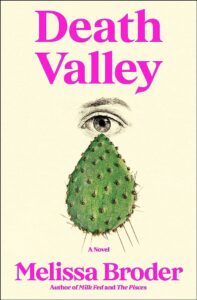
Melissa Broder, Death Valley
Scribner, October 3
The premise alone makes it impossible for me to not read this book. A grieving woman flees to the California high desert and therein discovers a giant, mystical cactus with a door-sized gash on its side that beckons her to enter. After the success of The Pisces and Milk Fed, both of which are set to be adapted for the screen, Broder’s third novel, “born out of my father’s six-month stay in the ICU prior to his death, and my inability to escape the experience of being human on a stretch of Highway 15 between Los Angeles and Las Vegas,” seems likely to be one of the most high-profile releases of the fall. –DS
NICOLA GRIFFITH, MENEWOOD
MCD, OCTOBER 3
As previously recommended: Ten years after the publication of Hild, Griffith’s beloved retelling of the life of Hilda of Whitby, we’re finally getting a sequel, in which Hild is all grown up and building her stronghold in the titular Menewood—but war is coming, and Edwin needs her yet again. Middle Ages, here I come. –ET
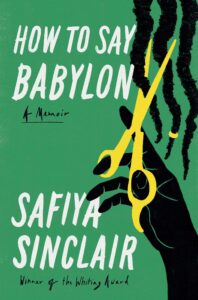
SAFIYA SINCLAIR, HOW TO SAY BABYLON
SIMON & SCHUSTER, OCTOBER 3
As previously recommended: If you haven’t read Safiya Sinclair’s poetry collection, Cannibal, yet, you should do that immediately. You will fall in love with the way she wields language, with her ability to conjure history and turn myth in on itself, and then you will undoubtedly understand why it’s so exciting that her memoir will be gracing us with its presence this summer. In How to Say Babylon, Safiya Sinclair explores her strict Rastafarian upbringing, examining her relationship with her controlling father. Under his roof, women were to be obedient and to not have opinions. So it was a lifeline when her mother started sharing books, especially poetry, with her children. This memoir is a story of rebellion, culture clash, and a love letter to the curative powers of literature. In Cannibal, Safiya Sinclair draws heavily on Genesis and the story of Eve; How to Say Babylon is a writing of her own origin story. –Katie Yee, Associate Editor (emeritus)

Roxane Gay, Opinions
Harper, October 10
Unless you’ve been living under a rock for the past ten years (if so, good for you), you’ve read Roxane Gay’s cultural criticism and don’t need me to tell you that a 300-page collection of her work—ranging in topic from civil rights to (very funny) workplace etiquette—is worth anticipating. I have a vivid memory of returning to my hotel room after an exhausting conference in 2015 and electing to spend several hours reading Bad Feminist instead of drifting off into post-panel oblivion, which is a ringing endorsement from me, an introvert who loves sleep. –ES
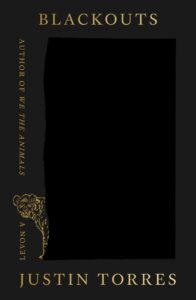
Justin Torres, Blackouts
FSG, October 10
After twelve long years, we’re finally getting a second novel from Justin Torres, whose We the Animals has become a well-loved contemporary classic. Torres has always been a beautiful, immersive writer, but his already considerable powers have clearly expanded in this book, which centers around a mysterious text, whose partially blacked-out pages are doled out as we read, along with other art and artifacts of messy and glorious life, as part of the stories two men tell about themselves and each other. –ET
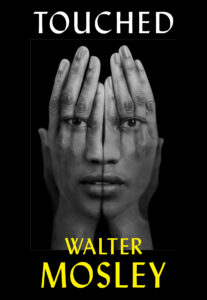
Walter Mosley, Touched
Grove, October 10
Dystopian fantasy with an edge of satire from one of the best to ever do it? Yes please. Though we live in an era that often feels beyond parody, Walter Mosley’s story of one Black man’s otherworldly defense of his family—surrounded as it is by the whiteness of the Hollywood Hills—feels truer than most Fox News headlines. –JD
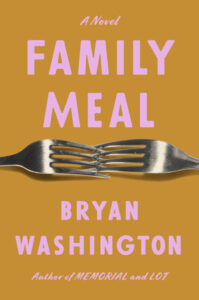
Bryan Washington, Family Meal
Riverhead, October 10
Bryan Washington returns to familiar themes and settings in Family Meal: love, sex, grief, food, against the backdrops of Houston and Osaka. I love when authors do this—write what they know, and where they know, but with different iterations and new characters, even if they have similar preoccupations and habits. Writing about food is something Washington does so well, creating vivid expressions of care and lineage and ancestry in the meals characters prepare for one another. Family Meal is about two best friends reuniting in their hometown after one experiences the death of a partner. Washington writes about loneliness and despair with the kind of care I crave; instead of dipping into nihilism, his characters continue to try and understand one another. Even if there is turning inward, there is always turning toward, a constant reaching, reaching. –JH
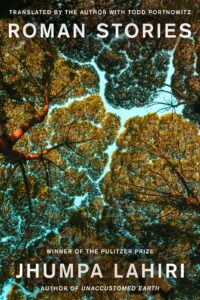
Jhumpa Lahiri, tr. Todd Portnowitz, Roman Stories
Knopf, October 10
In her first short story collection since 2008’s Unaccustomed Earth, Lahiri returns with stories that were written in Italian (she translated them alongside editor Todd Portnowitz). Lahiri’s stories are often undramatic, seemingly quiet, with interior transformations acting as the crux of the drama. Here, many of the stories probe the experience of immigrants in Rome, and as we follow those on the margins of society, we learn something not only about Rome, but ourselves. –EF
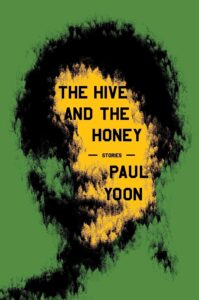
Paul Yoon, The Hive and the Honey: Stories
Simon Element, October 10
The third short story collection (his first since 2017’s The Mountain) from Young Lions Fiction Award-winner and Guggenheim fellow Yoon spans cultures and centuries, roving from small town New York, where a formerly incarcerated man tries to start a new life, to the Edo Period in Japan, where a Samurai escorts an orphan boy back to his countrymen. Yoon’s 2020 novel-in-stories Run Me to Earth—a subtly devastating panoramic portrait of three lives displaced by war—was one of the standout books of that year, so I’m pretty damn excited for this one. –DS

Werner Herzog, tr. Michael Hofmann, Every Man for Himself and God Against All: A Memoir
Penguin Press, October 10
I am beside myself with anticipation for this, the first ever memoir (with apologies to 2004’s Conquest of the Useless: Reflections from the Making of Fitzcarraldo) from one of the most singular filmmaking talents, and personalities, in the history of the medium. From his impoverished childhood in war-torn Germany to his outlandish adventures chasing oddballs and outcasts across seven continents, Every Man for Himself and God Against All (magnificent title, of course) promises to take us inside the mind and memory of a man whom Roger Ebert described thusly: “has never created a single film that is compromised, shameful, made for pragmatic reasons, or uninteresting. Even his failures are spectacular.” –DS
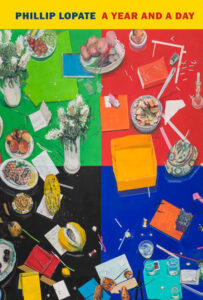
Phillip Lopate, A Year and a Day
NYRB, October 10
Phillip Lopate is considered a “grandfather” of the personal essay (which begs the question, who’s the grandmother?), which might give the impression that he’s authoritative and aloof, a kind of modern Montaigne writing away in his tower. That is resolutely not the tone to expect from his new collection, grown out of a yearlong series of blogs he wrote for The American Scholar, which had me laughing in the introduction alone. “I had no idea how many ‘hits’ the blog was getting and I did not want to know,” he writes. “It suited me fine to think that no one was reading it, expect for a few loyal friends or desperate souls who needed to get a life.” More blogs by our literary forebears, please! –ES
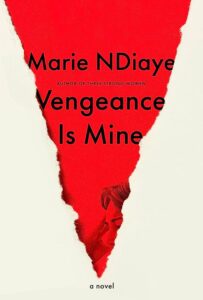
Marie NDiaye, Vengeance Is Mine
Astra House, October 17
In Marie NDiaye’s sinister and spellbinding new novel, a lawyer is hired by the husband of a woman accused of murdering her three children, despite her lack of experience in high-profile trials. Meeting him unlocks memories for her of a childhood visit to a palatial home, perhaps occupied by the husband’s family, and wonders if she perhaps met her new client when she was 10 and he was 15. But what happened between them? And why can’t she remember the details? Half suspense novel, half dark fairy tale, Vengeance is Mine is a literary tour-de-force. –MO
Curtis Chin, Everything I Learned, I Learned in a Chinese Restaurant: A Memoir
Little, Brown, October 17
In this first memoir by Chin—organizer, filmmaker, writer, and cofounder of the Asian American Writers’ Workshop—we’re dunked into the world of 1980s Detroit as most of us have rarely been seen before: from the windows of a Chinese restaurant, where a young boy is navigating a changing city, a large family, and his own identity. –ET

Molly McGhee, Jonathan Abernathy You Are Kind
Astra House, October 17
If you’re at all tuned into the publishing world, you recognize Molly McGhee as a former editor who left the industry last year and has been speaking out about the intersection of class and publishing. It was interesting to have that context in mind when reading her new book, “a debut novel for the modern working stiff.” It follows Jonathan Abernathy, a down-on-his-luck type who’s drowning in debt and takes a government job in the hopes of freeing himself, an unconventional gig that involves entering the dreams of middle-class workers and removing anything unpleasant so they can be better workers by day. It’s the spiritual sibling of Severance, but creepier. –ES
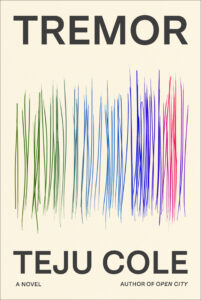
Teju Cole, Tremor
Random House, October 17
Cole’s first novel since his genre-bending 2011 wanderbook Open City focuses on Tunde, a West African man teaching photography “on a renowned New England campus” (dollars to donuts this is Harvard, where Cole teaches creative writing). The publisher describes the book as a startling work of realism and invention that engages brilliantly with literature, music, race, and history as it examines the passage of time and how we mark it. It is a reckoning with human survival amidst ‘history’s own brutality, which refuses symmetries and seldom consoles,’ but it is also a testament to the possibility of joy…Cole once again offers narration with all its senses alert, a surprising and deeply essential work from a beacon of contemporary literature.” I’m very curious to get another taste of Cole’s work. –ET
Tan Twan Eng, The House of Doors
Bloomsbury, October 17
It’s been eleven years since Malaysian novelist Tan Twang Eng’s last book, the bestselling and Booker Prize-shortlisted The Garden of Evening Mists. At last, he returns with a novel set in Penang in 1921, in which a declining Somerset Maugham descends on a couple who just might provide him with the literary inspiration he’s looking for. The publisher calls it “a spellbinding novel about love and betrayal, colonialism and revolution, storytelling and redemption,” and I am very much looking forward. –ET
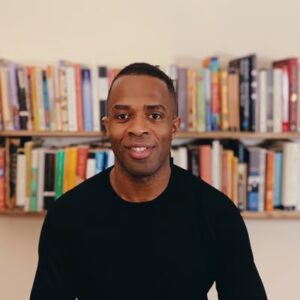
Eskor David Johnson, Pay As You Go
McSweeney’s, October 24
I love a good urban odyssey—the more fantastical and madcap, the better. In Iowa Writers’ Workshop graduate Eskor David Johnson’s blazing, biting, richly imagined debut, a barber with a mysterious past embarks upon a quest to find the perfect apartment within the teeming chaos of the shape-shifting island city of Polis. A brilliantly surreal and vivid feat of imagination, Pay as You Go has already earned comparisons to Saul Bellow’s The Adventures of Augie March, Zadie Smith’s White Teeth, and Paul Beatty’s The Sellout. –DS
Thurston Moore, Sonic Life: A Memoir
Doubleday, October 24
Wanna look cool this fall (and/or fill the Just Kids-sized hole in your literary heart)? Pick up the memoir from Moore, founding member of Sonic Youth, which tells the story of his rise from small-town music fan to rock legend—and which by the way comes with a blurb from Colson Whitehead, who writes that “Thurston Moore has unearthed the missing links, the sacred texts, the forgotten stories, and the secret maps of the lost golden age. This is history—scuffed, slightly bent, plenty noisy, and indispensable.” –ET
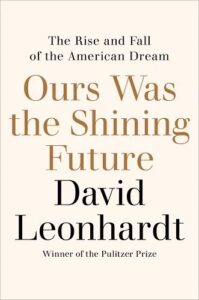
David Leonhardt, Ours Was the Shining Future: The Rise and Fall of the American Dream
Random House, October 24
Whatever happened to the American Dream? In this book, the Pulitzer Prize-winning columnist and senior writer at The New York Times David Leonhardt examines the current state of the American economy: polarized, stagnant, plagued by inequality, and rapidly losing any remaining optimism. “Americans used to believe that each new generation would live happier, healthier, better lives than the last, and this belief gave them pride in their country and faith in their institutions,” writes Walter Isaacson. “Now we are losing confidence in the American Dream, and along with it our generosity of spirit. Our politics is poisoned by anger and distrust. By explaining how we got to this critical moment, Leonhardt helps us understand how we can restore the American dream for all.” One can only hope. –ET
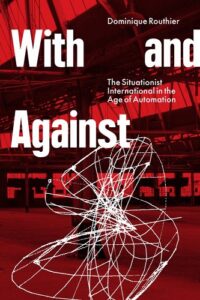
Dominique Routhier, With and Against: The Situationist International in the Age of Automation
Verso, October 24
We’re probably due a serious resurgence of Situationist thinking (I’m looking at you Gen Z TikTok): if ever we were living in a “society of spectacle,” this is it. And though more than a half century has passed since Guy Debord first raised the alarm about capitalism’s irradiation of culture, we have absolutely not come to terms with the rise of “cybernetics and automation.” More than mere history or intellectual recapitulation, though, With and Against simultaneously interrogates Situationist principles while also reframing them—urgently—for the dizzying spectacle that is the 2020s. –JD
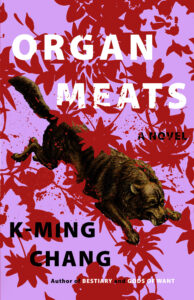
K-Ming Chang, Organ Meats
Random House, October 24
The latest novel from Kundiman fellow, a Lambda Literary Award finalist, and a National Book Foundation 5 Under 35 honoree K-Ming Chang, author of Bestiary and Gods of Want, gets even weirder than what we’ve come to expect from her, taking readers down a surreal path of myth and magic and girls who are dogs who are girls in gorgeous, lyrical prose. It also has a very cool cover. –ET
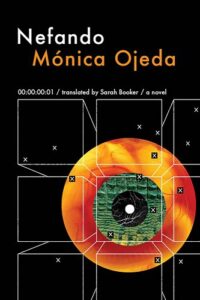
Mónica Ojeda, tr. Sarah Booker, Nefando
Coffee House Press, October 24
Mónica Ojeda’s twisted, strange, and compulsively readable English language debut Jawbone whetted my appetite for any horror she might concoct. Enter: Nefando, which tells the story of six young artists sharing an apartment in Barcelona who, in the parallel reality of a mysterious video game (Nefando), banish pain and trauma while becoming increasingly inured to taboos. –JG
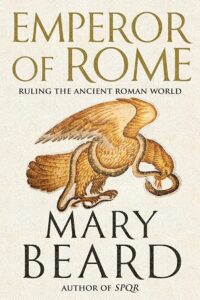
Mary Beard, Emperor of Rome: Ruling the Ancient Roman World
Liveright, October 24
For history buffs and erstwhile toga partiers alike: a deep dive on the emperors of Rome—and the nature of the position itself—by popular literary historian and bestselling author of SPQR, Mary Beard. –ET
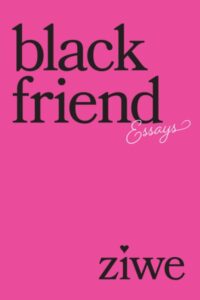
Ziwe, Black Friend: Essays
Abrams Image, October 24
For those devastated by the abrupt cancellation of the hit Showtime series Ziwe, never fear: eponymous host Ziwe Fumudoh is publishing her first book of essays this fall. Ziwe has carved out quite a niche voice for herself, contrarian and deadpan—she’s famous for asking celebrities on her show point-blank how many black friends they have, and then staring wide-eyed at them while they stutter and laugh and excuse themselves. It’s an extremely specific and compelling way of interviewing, one of the rare celebrity interactions we see that doesn’t seem highly choreographed. Her book of essays promises to give fans a healthy dose of the voice they know and crave from Ziwe; no matter which direction her career continues, Ziwe is undoubtedly a star worth paying attention to. –JH
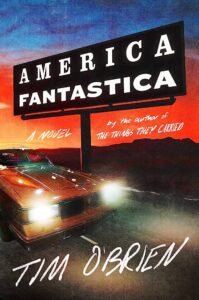
Tim O’Brien, America Fantastica
Mariner, October 24
The first novel in two decades from National Book Award-winner Tim O’Brien (The Things They Carried) sounds like an absolute hoot. Billed as “[a] rollicking odyssey, in which a bank robbery by a disgraced journalist sparks a cross-country chase through a nation corroded by shameless delusion and deceit,” it’s the story of Boyd Halverson (the disgraced journalist turned bank robber) and Angie Bing (his unsuspecting but irrepressible hostage) and their multi-month flight/revenge mission, from California to Mexico to Minnesota, with just about every conceivable pissed-off pursuer on their tail. –DS
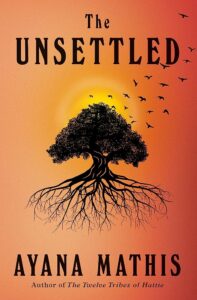
Ayana Mathis, The Unsettled
Knopf, October 24
Ayana Mathis’s 2012 novel The Twelve Tribes of Hattie was gripping and gorgeous (and Oprah-approved), and The Unsettled looks to be every bit as powerful. The multi-generational novel tells the story of Ava Carson, a single mother in 1980s Philadelphia, and her estranged mother in Bonaparte, Alabama as they fight to preserve their families and their history. Mathis is a masterful storyteller, and this novel promises to be as compelling as it is powerful. –JG
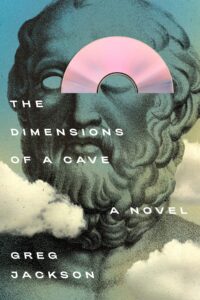
Greg Jackson, The Dimensions of a Cave
FSG, October 24
Greg Jackson, the author of an excellent short story collection, Prodigals, was listed as one of Granta‘s Best Young American Novelists in 2017, and yet it has taken until now for his debut—”a virtuoso journey into networks of power, our embroilment with new technologies, and the dangers of corruption” that “explores our drive toward war, violence, and venality, placing humanity and idealism under the spotlight”—to actually be published. I am anticipating that it will be worth the wait. –ET
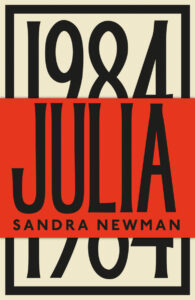
Sandra Newman, Julia
Mariner, October 24
The Heavens was a life-sustaining read for me in the early pandemic, and I can’t wait to read the retelling of 1984 from the point of view of Winston’s lover, Julia. 1984 is, these days, more of a mangled political talking point than a book (apologies to Orwell), so I look forward to re-engaging with the text though Newman’s (feminist) retelling. –JG
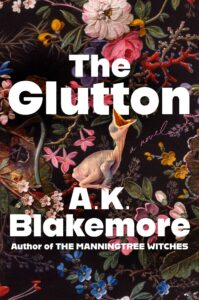
A.K. Blakemore, The Glutton
Scribner, October 31
I loved Blakemore’s devilish 2021 debut The Manningtree Witches, and her follow-up sounds just as demented/beguiling. The novel is inspired by the real figure of The Great Tarare, The Glutton of Lyon, a French showman in 18th century France, cursed with an insatiable appetite—an appetite that may or may not have led him to unspeakable acts. Excuse me when I say: fun! –ET
James Spooner and Chris L. Terry, eds., Black Punk Now
Soft Skull Press, October 31
A new anthology of fiction, nonfiction, comics, and art that seeks to showcase “all of the strains, styles, and identities of Black punk that are thriving,” as well as giving “newcomers to the scene more chances to see themselves” by decentering the whiteness that has long dominated the image of “punk.” Contributors include Hanif Abdurraqib, Mars Dixon, and Brontez Purnell. –ET
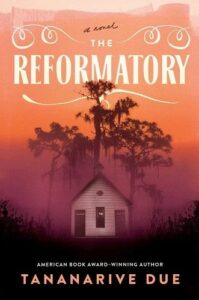
Tananarive Due, The Reformatory
Gallery/Saga Press, October 31
Tananarive Due is one of the greatest living horror writers, and her new book blends her signature style with an exploration into a very personal trauma: Due’s great-uncle was one of many Black children harmed by the Florida reform school known as the Dozier School for Boys, and The Reformatory takes readers into the nightmare that was the school circa 1950. Sure to be as powerful as it is haunting. –MO
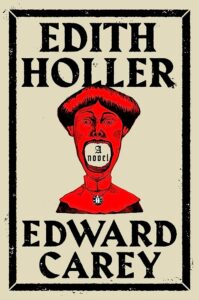
Edward Carey, Edith Holler
Riverhead, October 31
Carey’s ninth book concerns a young girl who lives in—and in fact is never allowed to leave—a theater in Norwich in 1901. Reading about the city, and observing its denizens, but never venturing out into it, she begins to realize the city’s awful secret, even if no one will believe her. You can get a sneak peek of the illustrations in the book here. –ET
NOVEMBER
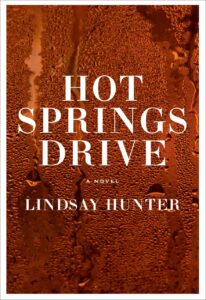
Lindsay Hunter, Hot Springs Drive
Roxane Gay Books, November 4
I love Hunter’s visceral, gritty writing, which is always packed tight with emotion and resonance; her latest novel, the third book to be published by Roxane Gay’s new imprint, sounds right in line with the rest of her work, taking on motherhood, friendship, and the casual horrors of suburbia, and described as “an urgent, vicious blade of a novel about a shocking betrayal and its aftermath, asking just how far you’ll go to have everything you want.” –ET
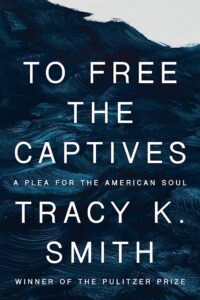
Tracy K. Smith, To Free the Captives: A Plea for the American Soul
Knopf, November 7
One of our most brilliant literary minds—the Pulitzer Prize-winning poet Tracy K. Smith—takes, as Eddie S. Glaude Jr. put it, “a vulnerable, honest look at a life lived in a country still struggling with its evils.” Blending the personal and the historical (inextricable anyway), this promises to be a moving and important book. –ET
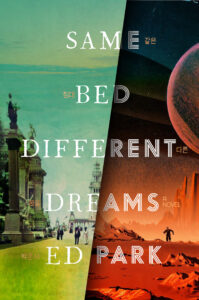
Ed Park, Same Bed Different Dreams
Random House, November 7
Sometimes the simulation is a little on the nose—you see the glitches when trying to make sense of the world in its current iteration. So goes the present-day US for a handful of characters clumped under the “Asian-American” label in Ed Park’s witty and inventive new novel Same Bed Different Dreams, which hinges on a revisionist history in which the Korean Provisional Government of 1919 survives to strategize reunification from behind the Red Window Shade.
What did it mean to be Korean, rather than Japanese, wonders a character whose ethnic inheritance has been shrouded by the aftermath of World War II, a sentiment that extends to cultural touchpoints in the present era, from the Stanley Cup to failing lit mags to the tech aspirations of your local HR department. The novel houses a dream inside a story inside a flashback, and brings together the histories of Soon Sheen, a programmer at a nefarious tech company (GLOAT), Parker Jotter, a Korean war vet turned appliance story owner, Monk Zingapan, a game designer, and Story (Astoria), Soon’s gaming child. Park’s alternate history is written with a dedication to invented facts rivaling Biography of X and The Man in the High Castle. Hurry to snatch a copy, then take your time so you don’t miss all the Easter eggs. –JM
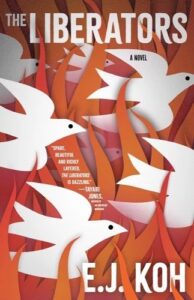
E.J. Koh, The Liberators
Tin House, November 7
The first novel from Koh, poet, translator, and author of the 2020 memoir The Magical Language of Others is a family epic that investigates the reverberations of immigration, divided loyalties, the American Dream, love, memory, and inheritance through four generations. Almost certain to be a beautiful, heartbreaking book. –ET
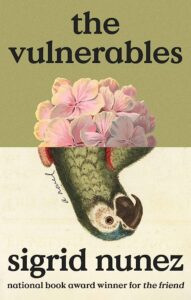
Sigrid Nunez, The Vulnerables
Riverhead, November 7
I’ve since explored Sigrid Nunez’s backlist, but like a lot of people, I first encountered her work through The Friend (about a woman grieving her friend, alongside his Great Dane), then What Are You Going Through (about a woman helping her friend end her life, alongside a cat). The Vulnerables makes it a trio, though I don’t think you could successfully accuse her of planning it that way, given that it’s about the Covid-19 pandemic. Specifically, it’s about a solitary woman who finds herself in lockdown with a parrot and a college-aged guy she initially loathes, then comes to tentatively connect with over their stoned conversations. (It’s about more than that of course, but you get the gist.) Say what you will about pandemic fiction, but I’m grateful that 30 or 40 years from now, when I have only a vague memory of what those years were like, I’ll have this book and its ilk to remind me. –ES
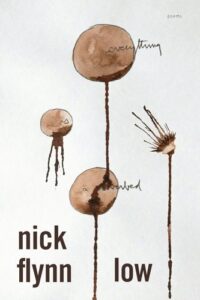
Nick Flynn, Low
Graywolf, November 7
I’m always interested in reading a new collection from Nick Flynn; this one “explores the jaggedness of memory and what is salvageable when the past is broken by loss, violence, and trauma” and features not only poems but essayish prose pieces. Can’t wait to dive in. –ET
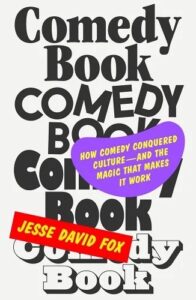
Jesse David Fox, Comedy Book: How Comedy Conquered Culture—And the Magic That Makes It Work
FSG, November 7
Comedy is very difficult to write compellingly about, but as Vulture’s comedy critic, Fox has consistently produced some of the best work about comedy that I’ve ever read. Comedy Book looks at the current cultural dominance of comedy and the legacies of some of its power players, and, in a more personal vein, its power to salve grief. –JG
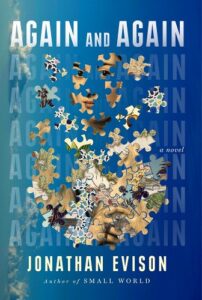
Jonathan Evison, Again and Again
Dutton, November 7
Gotta say I love the sound of this one, from the always funny and big-hearted Evison: it starts in a nursing home, where a grumpy resident named Geno informs his nursing assistant that in fact he has lived a thousand years, life after life, each one in thwarted pursuit of the true love he found and lost back in medieval Spain. Sure, okay, but there any possibility that he’s telling the truth? I will be reading to find out. –ET
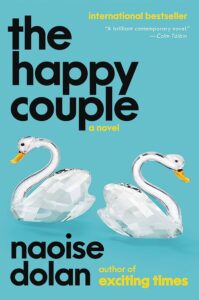
Naoise Dolan, The Happy Couple
Ecco, November 7
I loved Naoise Dolan’s 2020 novel, Exciting Times (remember the toothbrushes on the cover?), so I’m chomping at the bit to dive in to her newest, an ensemble novel about a so-called happy couple on their way to wedded bliss, and three friends who have… some thoughts about that decision. (Whomst among us??) Reading Dolan is like watching your favorite dramedy: the gossip is juicy, the stakes are ordinary yet elevated, and you’re in a little bit in love with everyone. –ES
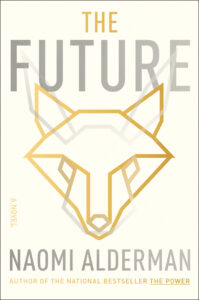
Naomi Alderman, The Future
Simon & Schuster, November 7
The author of The Power is back with another speculative novel that sounds all too close to home: billionaires who will sacrifice the rest of the world for their own safety, social media moguls obsessed with controlling everything in reach, and a mysterious piece of software that saves a survivalist from whoever is hunting her. And, of course, a heist. –ET

Barbra Streisand, My Name is Barbra
Viking, November 7
It’s finally time for Barbra Streisand to emerge from her basement mall and give the fans something to chew on: a tomb of a memoir, clocking in at a whopping 1,024 pages (can that be right?) that tells of the trials, tribulations, but mainly the trophies of an iconic singer and Broadway star. An EGOT winner and 46-time Grammy nominee, Streisand certainly has enough of a life story to fit these many pages; this peek into the vocalist’s upbringing and glamorous career should satisfy any Streisand lover or theater aficionado. –JH
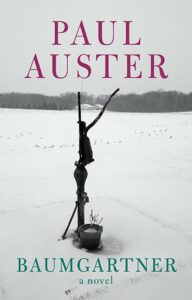
Paul Auster, Baumgartner
Grove Press, November 7
Many of the greatest Anglo-American male novelists of the last 50 years hit their peak in their thirties and forties, and then hung on for dear life trying to understand a culture that inevitably passed them by. Not so Paul Auster, whose distinctly continental, Proustian view of the world is ideally suited to the reflections of age. Auster, 76, brings this studied interiority to the story of Baumgartner, a philosophy professor looking back at a life like any other—all its joys, its tragedies—fully aware that the closer we are to death the more we can live only through our memories. –JD
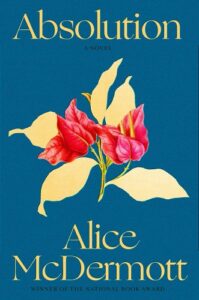
Alice McDermott, Absolution
FSG, November 7
McDermott’s latest is a novel about the Vietnam War, but focuses on a group mostly left out of its story: the American wives who served as “helpmeets” to their husbands in Saigon. It is a novel, as its publisher describes it, “about folly and grace, obligation, sacrifice, and, finally, the quest for absolution in a broken world.” –ET
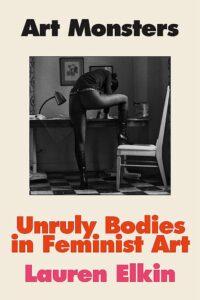
Lauren Elkin, Art Monsters: Unruly Bodies in Feminist Art
FSG, November 14
Inspired by Jenny Offil’s term “art monster”, the phrase coined in 2014 heard round the feminist world, Lauren Elkin takes an embodied approach to monstrosity and feminism with her new book, Art Monsters: Unruly Bodies in Feminist Art. She approaches the topic through a wide range of “visual thinkers”, including artists and writers, and synthesizes a new approach to gaining power for monstrosity. I cannot wait to read this book. –MO
Lexi Freiman, The Book of Ayn
Catapult, November 14
When a writer is canceled after her novel is dismissed as classist, she turns to the Objectivist philosophy of Ayn Rand (as you do), which leads her (of course) to Los Angeles, before it all falls apart and sends her to “a mysterious commune on the island of Lesbos.” Tony Tulathimutte calls it “infuriating, perverse, contrarian, scandalous, nihilistic, and very, very funny,” which makes it exactly the book I want to be reading right now. –ET
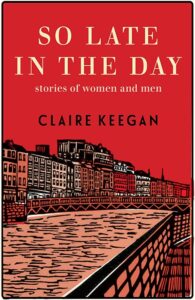
Claire Keegan, So Late in the Day
Grove, November 14
2022 was a banner year for Claire Keegan. Her first book in eleven years, the slim masterpiece Small Things Like These, won the Orwell Prize and was a Booker Prize finalist, and her 2010 novella Foster was adapted into the multi-award-winning (and Oscar-nominated) feature film An Cailín Ciúin. Keegan is widely considered to be one of the finest short story writers Ireland has ever produced, and these three stories—one new, two revised and expanded—demonstrate why.
So Late in the Day: Stories of Women and Men, the title story from which was published in the New Yorker last year, “probe the dynamics that corrupt what could be between women and men: a lack of generosity, the weight of expectation, the looming threat of violence.” –DS
Rebecca Renner, Gator Country: Deception, Danger, and Alligators in the Everglades
Flatiron, November 14
In this work of narrative nonfiction from National Geographic writer Renner—being pitched as “David Grann meets Susan Orlean,” which is very promising if even half true—a Florida fish and wildlife officer goes undercover to ferret out illegal poachers in the Florida Everglades—but all is not as it seems. For anyone who knows their Florida Man birthday headline. –ET
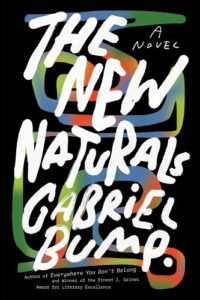
Gabriel Bump, The New Naturals
Algonquin, November 14
After the loss of their child, a Black couple sets out to build a Black utopia, underground and entirely separate from the world above. Besides its ambitious and fascinating premise, this novel has a couple thrilling comp titles: Percival Everett’s The Trees and Paul Beatty’s The Sellout. Count me in. –JG
Michael Cunningham, Day
Random House, November 14
The latest novel from the Pulitzer Prize-winning author of The Hours takes place over three days—three April 5ths, to be exact: in 2019, 2020, and 2021. Yep, it’s a pandemic novel, but of course it is more importantly a novel about a family, and how they weather hardship together. “Michael Cunningham, the perennial master of rendering the quotidian with a profound and deeply considered eye for human frailty, returns with a book that exemplifies the hallmarks of his style: lush, erudite, voracious in its seeking,” writes Ocean Vuong. “Like a true poet, he remakes the world in his descriptions, freshened with care and compassion and tinged with the radiant heat of grief. What a quietly stunning achievement.” –ET
Carmen Maria Machado, J. Robert Lennon, eds., Critical Hits: Writers Playing Video Games
Graywolf Press, November 21
Hell yes. As a writer who plays video games—and who loves so many of the authors included in this essay collection (I’m particularly excited to read Kwame Adjei-Brenyah on Disco Elysium)—I am more than ready. –ET
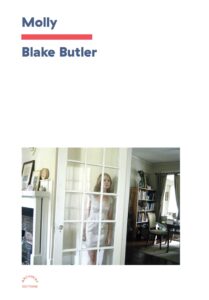
Blake Butler, Molly
Archway, November 21
I’ve been reading—and admiring—Blake Butler’s work for a decade. Many readers might be familiar with his brilliant novel Alice Knott which Riverhead published in 2020, but Molly promises to be something very different. Bulter’s wife, the poet, memoirist, and baker Molly Brodak, took her own life three years into their marriage. Butler had written beautifully about her before, but in Molly he tracks the discovery of a secret, “fundamentally altering his view of their relationship and who she was.” The publisher promises that Molly is a “supremely important work that will be taught, loved, relied on and passed around for years to come,” and I absolutely believe them. –EF
DECEMBER
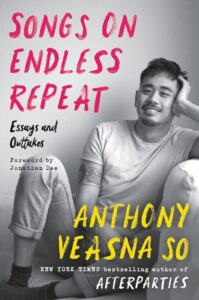
Anthony Veasna So, Songs on Endless Repeat: Essays and Outtakes
Ecco, December 5
Anthony Veasna So died far too young at age 28, leaving behind him the much loved story collection Afterparties, lauded by many as one of the best books of 2021. Songs on Endless Repeat collects Veasna So’s essays—on family, immigration, pop culture, and more—along with some of his unpublished fiction, further highlighting the brilliance of a writer we lost too soon. –JD
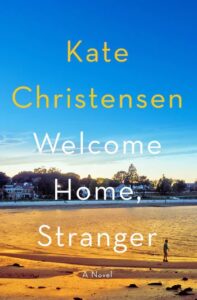
Kate Christensen, Welcome Home, Stranger
Harper, December 5
Few writers have a wit as razor sharp as Kate Christensen’s (brb, off to reread The Epicure’s Lament). Her new novel follows an environmental journalist as she returns to her small Maine hometown after the death of her mother, and grapples with grief, family, and aging. I would trust no less deft a hand than Christensen’s to manage the balance of humor, devastation, and squabbling. –JG
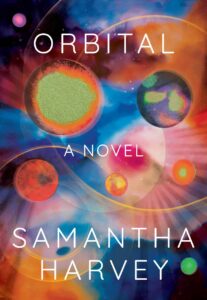
Samantha Harvey, Orbital
Atlantic Monthly Press, December 5
I’m suddenly into space these days, a development I’m quite pleased about if for no other reason than it led me to this musing, moody little book that captures one day—or 16 rotations of Earth—for six astronauts and cosmonauts circling our beautiful blue planet. It’s the writing that sells this book, not me, so here’s a sample, regarding the depressing possibility that we might actually be alone in the universe:
Until then what can we do in our abandoned solitude but gaze at ourselves? Examine ourselves in endless bouts of fascinated distraction, fall in love and in hate with ourselves, make a theater, a myth and cult of ourselves. Because what else is there? To become superb in our technology, knowledge and intellect, to itch with a desire for fulfillment that we can’t quite scratch; to look to the void (which still isn’t answering) and build spaceships anyway, and make countless circlings of our lonely planet, and little excursions to our lonely moon and think thoughts like these in weightless bafflement and routine awe.
It honestly pained me to not keep going, but if you’re not sold yet, I can’t help you. –ES
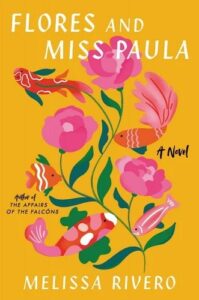
Melissa Rivero, Flores and Miss Paula
Ecco, December 5
The latest novel from the author of The Affairs of the Falcóns centers on a complex mother-daughter relationship—it’s been three years since Martín, Flores’s father and Paula’s husband, died, and the two women are living uneasily together in their Brooklyn apartment, awash in doubts and desires and memories. When they learn they will be forced to move, they will also be forced to confront themselves, and each other. –ET
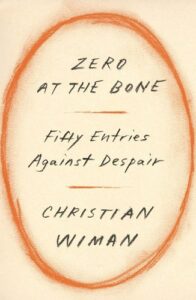
Christian Wiman, Zero at the Bone: Fifty Entries Against Despair
FSG, December 5
I have always loved the poetry of Christian Wiman: the richness of the language as it oscillates from the vulgar to the decorous; the sly formalism, often a barely visible framework for the images therein; the bravery with which the poet reveals himself at his most vulnerable… It is this last quality that made Wiman’s 2007 collection of short essays and prose, Ambition and Survival: Becoming a Poet, such an unforgettable work. And it is why I’m excited by Zero at the Bone, a collection of 50 short prose works in which Wiman reflects on family, his West Texas childhood, and the poets who made him who he is. –JD
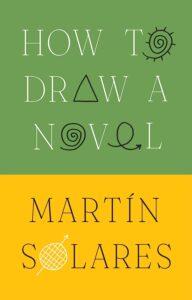
Martin Solares, How to Draw a Novel
Grove Press, December 12
Back in 2015, when everything was different, a little literary website named Lit Hub launched early one April morning. We were lucky enough to publish a work-in-progress, a translation from Solares’ Cómo Dibujar Una Novela. Now, finally finished and available in translation, this craft collection examines the novel in all its forms, exploring structure, how writers discover characters, and the importance of place (or not). An important and beautifully rendered craft book. Find an excerpt here. –EF









